|
Intras leads an ambitious project to digitize mobility in the Mediterranean Corridor |
||
|---|---|---|
|
Dr. Alonso spoke about the ITS DS4M Mediterranean: Data Space for Mobility project, led by INTRAS, which aims to digitize mobility in the Mediterranean Corridor and is funded by the Ministry for Digital Transformation and Public Service. According to Alonso, “in mobility there is a lot of data, for example, how people move, where, what that mobility produces from the point of view of emissions, but all that data is not integrated in a single place and from the point of view of planning policy it is very important to collect that data. Data that comes from very different sources”. This platform will contribute to better planning of public transport, to try to reduce travel times, to reduce the impact on the environment that we develop with our trips, etc.... This project will also involve the participation of other research centers of the University of Valencia, such as the IRTIC (Institute of Robotics and Information and Communication Technologies). |
||
| Interview | ||
|
In exceptional situations, the trend is towards greater understanding and solidarity in driving |
||
|---|---|---|
|
Dr. Alonso has talked about public transport, which he considers a priority in this situation, or the staggered entry to work to avoid these collapses. Public transportation is fundamental for the metropolitan area but we do not have information on demand. Alonso believes that we should have public applications to provide more interactive information for users by public institutions. As for the aggressive driving that is generally caused by the congestion produced, Francisco Alonso pointed out that, in these exceptional situations, the trend is towards greater understanding and solidarity. |
||
| Interview | ||
|
Road safety is a challenge for Latin America |
||
|---|---|---|
|
Dr. Alonso has highlighted the importance of the First Regional Meeting for Latin America of the Global Alliance of NGOs for Road Safety held in Mexico from November 5 to 7, given that road safety is a challenge for Latin America, and where a reduction of road accidents is sought. Professor Alonso points out that speed, attitudes, behaviors, road safety education, alcohol, are some of the factors that are involved in road accidents and calls for two fundamental things: training and road safety education and a regime of consequences such as the Points License. As for the Permanent License, Alonso believes that it could be admissible as long as two conditions are met: that the person does not commit infractions and that he/she continues to meet the psycho-physical conditions to be able to drive, for which he/she has to receive training related to risk perception, attitudes and that all this is assessed from the point of view of the exam. |
||
| Interview | ||
|
The implementation of the driver's license points system reduces accident rates by 15-20% |
||
|---|---|---|
|
Taking advantage of the celebration of the First Regional Meeting for Latin America of the Global Alliance of NGOs for Road Safety, reporters Carlos “Chicken” Muñoz and Héctor Chavarría have interviewed Dr. Alonso about the study conducted by INTRAS for the Aleatica Foundation for Road Safety related to the implementation in Mexico of the Life-Saving Point License System. The driver's license points system is a tool for penalizing infractions committed by drivers that has been implemented in numerous countries with the aim of reducing road accidents. This system penalizes offenses committed by drivers by varying the number of points associated with the license (gain or loss of points). Theoretically, this system is an appropriate measure to influence the recidivist driver and contemplates different dimensions as basic principles: punitive, preventive, reinforcing, re-educating, rehabilitating and conditional. The implementation of this system requires an initial investment in technological infrastructure, personnel training, awareness campaigns and other complementary actions. Based on the effectiveness demonstrated in countries around the world, a reduction in the accident rate of between 15-20% is expected, which in Mexico would correspond to saving between 2,400 and 3,250 lives annually. |
||
|
We do not have the perception that we can die in the city due to a traffic accident |
||
|---|---|---|
|
On the occasion of his forthcoming appointment as Full Professor, Dr. Alonso has made a review of these years dedicated to road safety research to show a vision of road safety in general and, above all, in cities. Although at a general level the accident rate has decreased significantly, at an urban level we have to worry because it has increased mainly due to the aging of the population and the irruption of other means of transport (bicycles and personal mobility vehicles or scooters). As for motorcycles, the rate has increased to the point of surpassing that of pedestrians in some areas. Another risk group, the elderly, do not have a higher accident rate but the consequences are more serious. In addition, all these circumstances make them experience the city as a stressful environment. According to Dr. Alonso, the problem is that we do not have the perception that we can die in the city due to a traffic accident. As for the city of Valencia, he considers that it is devolving as we prioritize the means of transport. It is good to give importance to being pedestrians but public transport should be encouraged more. |
||
|
At what age should you stop driving? |
||
|---|---|---|
|
Dr. Alonso explained that, although road regulations do not establish an age limit to have a valid driving license, in most cases medical check-ups work because only 13% of drivers over 75 years of age have a valid driving license without restrictions. In many cases some restrictions are determined, such as driving only during the day or the prohibition to travel more than 30 kilometers from the place of residence. |
||
| Interview | ||
|
INTRAS, concerned about the “negligent” attitude of some drivers on the roads of the Valencian Region |
||
|---|---|---|
|
Dr. Alonso makes a very negative assessment of the data released this week by the Guardia Civil: during the month of July, 87 drivers were intercepted who had either lost all their license points or were simply driving without ever having had a license. This data is “very serious” because it confirms that every day dozens of drivers put the lives of thousands of others at risk. Alonso considers that negligent drivers should be made aware of the criminal consequences of their attitude and asks that the Guardia Civil controls do not cease to try to identify this type of drivers and remove them from Valencian roads. |
||
|
Increase in the number of road fatalities |
||
|---|---|---|
|
Due to the fact that the number of deaths on the roads has increased by 16 percent in the first quarter of 2024, the Minister of the Interior has presented a package of measures with which the Directorate General of Traffic (DGT) aims to reduce the number of traffic accidents and their lethality. Dr. Alonso emphasizes that the consumption of both alcohol and drugs is still very present, which is why the DGT will increase their control. Other measures will include the installation of new fixed speed control points and, in addition, surveillance will be intensified by means of new agents in areas where these accidents have increased, mainly highways and freeways. |
||
|
What to do when we have an accident on the highway? |
||
|---|---|---|
|
In these cases, Dr. Alonso reminds us to stop the car out of the lane whenever possible, turn on the position lights and emergency lights, and turn off the engine. It is important to bear in mind not to get out of the vehicle through the driver's door, as this is very dangerous, and to get behind the crash barriers after putting on the vest, which should be accessible inside the vehicle. As for the emergency triangles, in this case, they should not be placed because of the danger they pose to the accident victim and other vehicles. From 2026, these accident signaling elements will be replaced by the V16 device, which will be placed on the upper plate of the car, has GPS and 5G connection and can emit a 360-degree light. And we must not forget that a breakdown can end up in an accident and rescue means, above all, accompanying and waiting for the medical services to come, and if you do not know first aid it is better not to act. On the other hand, and with regard to the almost 800 complaints made during the first days of the campaign to control bicycles and scooters of the City Council of Valencia, Dr. Alonso believes that we should not necessarily think about how the sanctions affect the pocket, but that it is "a warning that you can die in a traffic accident" and calls for common sense to users of such vehicles, before acts such as wearing headphones while riding a bicycle or scooter, the reason for many of these sanctions. |
||
| Interview | ||
|
Some scooter users are unaware of basic traffic rules or signals |
||
|---|---|---|
|
From now on, all scooters sold must be certified with minimum safety and quality standards, with mechanisms to prevent users from tampering with them and increasing their maximum speed. Dr. Alonso is in favor of electric scooter users taking a road safety course to be able to continue using them, since some users are unaware of basic traffic regulations and signs. He warns that there are still many things to be done to improve the safety of electric scooter users. One of them is to increase police controls to ensure that all comply with the regulations and another would be that they have to pass a mandatory road safety course so that, at least, they know the signs and basic traffic rules. As for the most dangerous points on scooters, according to the studies that have been done so far, the most conflictive points are intersections or problems with pedestrians. Another point highlighted by Alonso is insurance, which right now is not mandatory for scooters but could be a good tool to improve the identification of users and avoid problems when accidents occur. |
||
| Interview | ||
|
Speeding is the main cause of driving penalties |
||
|---|---|---|
|
In the section "Radars for a target", and on the occasion of the news of the installation of 150 new radars to be installed by the DGT this year, Dr. Alonso has indicated that speeding is the main cause of penalties at the wheel. It must be taken into account that with speed we lose certain types of abilities (for example, peripheral vision), which increases the risk of an accident and that, when we have one, the consequences are greater. Regarding the functioning of the radars, Alonso talked about fixed radars (with a 5% margin of error), mobile radars (with a 7% margin of error) and section radars, which control the average speed, and which Dr. Alonso believes should be strengthened. As a reflection, the Director of INTRAS believes that, when we run in the streets, we are not showing our skills, we are not competing with anyone and what we have to do is to preserve our life, preserve our health and preserve the health of others. It does not make any sense to run because, besides, we do not gain anything, the benefit obtained in time is minimal. It should be noted that speeding is also a criminal offense and, in addition to fines, there may be imprisonment. |
||
|
The importance of self-explaining and forgiving roads |
||
|---|---|---|
|
In the interview they talked about driving in people over 65-70 years old, reflecting on the suitability or not to continue driving at an advanced age. Dr. Alonso highlighted the importance of not taking the car if we are not in good condition, regardless of our age. In addition, he is in favor of placing some limitations on older people who lose some of their abilities instead of preventing them from driving. He also considers that medical recognitions to renew driving licenses should be carried out every less time. On the other hand, Alonso talked about two concepts in traffic engineering that could help the elderly in particular: self-explaining roads and forgiving roads. In the first one, the road itself, through the signage and design, is telling you about the danger and the type of behavior you should have on it (for example, the signaling of black spots). In the second ones, when you have an accident, the consequences are minimized. For older people, the consequences of accidents are more serious because their physical capacity or resistance to an accident is much lower. We should have passive road safety systems so that, when a mistake is made, it can be rectified and, when the accident occurs, the consequences of that accident are minimized. |
||
| Interview | ||
|
Driving safety does not depend on age alone |
||
|---|---|---|
|
People over 65 years of age are the most experienced drivers on our roads, but they are also the ones who suffer the worst road accidents. Francisco Alonso states that "as age increases, there are a series of physical and psychological deteriorations that can affect driving". Thus, Dr. Alonso considers that, "in view of the fact that the group of elderly people is becoming more and more numerous, we should improve the roads by creating self-explaining and "forgiving" roads that avoid accidents and minimize the consequences of accidents in case they do occur". |
||
|
More citizen awareness of the traffic problem in the Dominican Republic |
||
|---|---|---|
|
Dr. Alonso, who worked on the development of the regulations for the application of Law 63-17 on Mobility, Land Transportation, Transit and Road Safety as an advisor to Intrant, considers that little progress has been made in terms of road safety and education in the Dominican Republic and that the citizenry in front of the wheel continues to be aggressive and disrespectful of traffic laws. Alonso pointed out that what the country needs most is citizen awareness and the application of a regime of consequences against driving infractions. Following Alonso's participation in the " Magisterial Chair of Tourism Frank R. Rainieri", organized by the Universidad Central del Este, the Puntacana Group and the University of Valencia, the municipal authorities showed interest in developing a plan to put an end to the chaos in the East zone. Dr. Alonso advised that road safety, both for tourists and workers in the tourism sector, should be guaranteed through actions that include the training of drivers, including road safety education in schools, and to study the stretches of roads where historically there have been more accidents. |
||
| Interview | ||
|
Implementation of the Low Emission Zone (LEZ) in Valencia |
||
|---|---|---|
|
About the LEZ, Dr. Alonso considers that the regulation of the Low Emission Zone has to be done in a way that "is credible, possible from an inclusive point of view, especially for the most disadvantaged and people with fewer resources, protecting all actions to be carried out in objective measurements of pollution that are strictly the product of road transport that occurs in the city". |
||
| Interview | ||
|
The dangers of tricking electric scooters |
||
|---|---|---|
|
Nowadays it is common to find users of electric scooters in the bike lane. The speed limit for electric scooters is 25 km/hour. With the boom in sales, it is observed that some of these scooters are modified by their users to exceed the speed limit. According to Dr. Alonso, the lack of periodic inspection makes it easier to modify their characteristics to increase their speed, together with the fact that there is no adequate supervision of this type of vehicles. According to INTRAS data, in 2020, 94 people were hospitalized due to accidents involving scooters, in 2021 this number increased to 171 and this year it has already exceeded 300. |
||
|
Bike lanes are now also scooter lanes |
||
|---|---|---|
|
The use of scooters continues to increase and the number of conflicts and accidents in interaction with other road users continues to grow. There is a national regulation that regulates general aspects of Personal Mobility Vehicles (PMV), although concepts such as age, helmet use or speed, are regulated by the ordinances of each municipality. Therefore, Dr. Alonso considers that it would be advisable, in addition to promoting the use of helmets or a reflective vest, to establish insurance or a license plate as mandatory for this type of vehicle. In Valencia, the highest number of sanctions is imposed for speeding, which means that most scooters are tricked, without any type of technical inspection to control it. According to Alonso, the ease of access to scooters is worrying since they are easily acquired and driven without having learned any road safety rules. |
||
| Interview | ||
|
Greater police surveillance of electric scooter users |
||
|---|---|---|
|
Some of the measures proposed by Dr. Alonso are mandatory insurance for users of electric scooters, greater police surveillance of the drivers of these light vehicles, especially those under 16 years of age, and greater alertness of the authorities to the modification or tampering of these Personal Mobility Vehicles (PMV) to make them run more. It is totally worrying how easily the power of an electric scooter can be "modified" without control by the authorities. "In these vehicles there is no technical vehicle inspection, therefore, when a policeman stops you he cannot know if it has been tricked, which is a handicap in the long term." He also warns that there has been an increase in the improper use of these light electric vehicles by children aged 13, 14 and 15, when they are prohibited for them up to the age of 16. For this reason, it is necessary to supervise the obligation to wear an approved helmet and to implement citizen awareness campaigns and to provide road safety training, especially for the youngest. |
||
| Interview | ||
|
Increase in accidents involving minors on electric scooters |
||
|---|---|---|
|
On the occasion of the increase in accidents involving minors as users of PMV's or electric scooters, Dr. Alonso has expressed the concern generated by the use of this type of vehicles. Although there is a national regulation that regulates general aspects, there are other concepts that are determined by the ordinance of each municipality, such as age, helmet use or speed. Scooters are for people over 15 years of age, but there are many minors who use them and most of them have no knowledge of road safety. Regarding helmet use, it is advised but not mandatory and we have to take into account that the electric scooter is a vehicle for vulnerable users. Regarding speed, although VMP's in origin can reach a speed of 25 km/hour, some have been modified and there is not enough police control regarding these vehicles. The conclusions are the need for better and more homogeneous regulation at the national level, increased police supervision and information campaigns on the dangers of using this type of vehicle. |
||
|
The controversy of Colón Street |
||
|---|---|---|
|
The previous government carried out a remodeling of Colón street, one of the main commercial arteries of the capital, which has reduced traffic by 9,000 vehicles per day. After the May 28 elections, the new government will commission an audit to take one of the two lanes away from public transport and give it back to private vehicles. Dr. Alonso is of the opinion that the remodeling was not successful, because there are many conflicts. Even so, he considers that an in-depth study of the area and its surroundings should be carried out, taking into account that the priority is pedestrians and public transport. |
||
| Interview | ||
|
Research report "Road Safety" |
||
|---|---|---|
|
Excessive speeding, overtaking with continuous line, invasion of the opposite lane... are infractions that endanger not only the life of the driver, but also that of the other drivers. Have reckless behaviors increased? Relatives of traffic accidents and experts ask for harsher penalties for driving under the influence of alcohol and/or drugs. Should penalties for traffic offenses be stiffened? Or is the solution based on awareness and road safety education? A report in which, in addition to Dr. Alonso, victims, relatives of victims, victims of road accidents and Dr. Luis Montoro, full professor of Road Safety, and other experts have taken part. |
||
| Report | ||
|
Balance of road accidents during Easter Week 2023 |
||
|---|---|---|
|
After the balance of deaths on the road this Easter, the data show an increase compared to previous years, being the main reason for the road exits due to distractions or speeding, although the state of infrastructure also influences. According to Dr. Alonso, the behavior that continues to be the cause of death on the road is the non-use of seat belts by some drivers, in spite of the campaign mentioned on the traffic panels. |
||
| New proposals to reduce traffic accidents in the city of Valencia | ||
|---|---|---|
|
Among the proposals that the Local Police submitted to the Sustainable Mobility Department during the presentation of the 2022 road accident rate in Valencia, to reduce traffic accidents in the city of Valencia, is the elimination of the amber phase at traffic lights at right-turn intersections on big roads. Francisco Alonso believes that a pilot study should be carried out, given that this measure affects mobility, and poor mobility generates infractions, aggressiveness and, ultimately, more accidents. Regarding the change of the first penalty for scooter users to road safety courses, Dr. Alonso states that this is a great proposal due to the lack of knowledge of the regulations, as no licence is required to drive a VMP, and he asks that the course should not only be theoretical, but also include a part on values and attitudes towards vulnerable users such as pedestrians. Another proposal is the creation of a section, within the Local Police, in charge of ensuring safety on cycle lanes, a measure that Alonso considers particularly important, especially to focus on the protection of pedestrians. Finally, on the possibility of increasing the number of signs on cycle lanes, the Director of INTRAS believes that additional signage is never a bad thing, but calls for campaigns to justify it and to publicise its meaning. |
||
| Interview | ||
| More accident rates on the road | ||
|---|---|---|
|
Analyzing these data, Dr. Alonso considers that there are several factors that contribute to the increase in accidents. These include the roads, which are poorly maintained, the maintenance of our vehicles and also our own behavior as drivers, which is more risky because we have a lower perception of risk with regard to this problem. As far as the influence of the pandemic is concerned, we must bear in mind that the number of journeys has increased compared to last year and, above all, compared to the period of confinement. In addition, after the pandemic, we are "trying to catch up with the time", which generates risky behavior. There has also been a large increase in pathologies such as anxiety and depression, which are two factors that directly influence the probability of having an accident. |
||
| Interview | ||
| Will wing mirrors be replaced by cameras? | ||
|---|---|---|
|
Alonso talked about the disappearance of one of the most "retro" safety systems in our vehicles, the rear-view mirror. In professional vehicles, such as trucks, they are beginning to disappear to make way for cameras, and this is a trend that has to do with all the driving assistance systems that will gradually replace the more traditional or "retro" systems. Two of the disadvantages of this are, on the one hand, that not all vehicles are prepared to have cameras in the rear and, on the other hand, we have an excess of confidence in the safety that these systems give us, which makes us adopt greater risks, generating a homeostatic process, that is, compensating this safety with greater risk, making the technology not as valuable as it could be. |
||
| After the pandemic we have forgotten the risk involved in driving | ||
|---|---|---|
|
Dr. Alonso comments that "after the pandemic we have taken to the roads and forgotten the risk involved in driving". The accidents that claim the most victims are road accidents and head-on collisions. Alonso explains that "in the first case, distractions play a major role, and in the second, aggressive driving, which leads to riskier overtaking on two-way roads". Scientific research by the World Health Organisation (WHO) indicates that the global prevalence of anxiety and depression increased by 25% after the Covid-19 pandemic. On this, Dr Alonso points out that "these substances sometimes cause us to drive in a more altered state, and sometimes they cause drowsiness. In both cases, this affects our ability to get behind the wheel and reduces our level of attention". As for the ageing of the car fleet, the Director of INTRAS states that "we have had our cars idle for a long time and now we are using them again, but they are older and less well maintained" |
||
| Interview | ||
| We drive worse after the pandemic | ||
|---|---|---|
|
The majority of fatal accidents are caused by road accidents and head-on collisions on conventional roads. There has also been an increase in road accidents. Distractions and speeding are behind many of these accidents. Alonso explains that this happens because we drive worse after the pandemic: more upset, sometimes under the influence of drugs and, in the worst cases, also drugs. |
||
| Interview | ||
| The number of accidents involving pedestrians has increased | ||
|---|---|---|
|
The increase in the number of pedestrians hit by pedestrians is a long-standing upward trend that contrasts with the decrease in deaths among other vulnerable road users such as motorcyclists. Comparing the evolution of accidents involving pedestrians and other road users, the data show that pedestrians are the most vulnerable road users. Urban roads account for the highest proportion of accidents involving pedestrians and casualties. Depending on the brightness, on urban roads the highest percentage of pedestrian fatalities and hospitalised injuries occur in daylight, while on interurban roads they are mainly concentrated at dusk and at night. In order to understand the figures, a clear distinction must be made between accidents involving casualties and fatalities, because although the latter indicator has decreased, the number of accidents involving pedestrians has increased, which is why we can say that in general there is an upward trend when it comes to accidents. |
||
| Interview | ||
| The impact of heat on driving | ||
|---|---|---|
|
The subject of the news item is related to the impact of heat on driving, as it increases the risk of accidents due to the appearance of fatigue, which affects our ability to react. |
||
| The human factor is the main cause of accidents | ||
|---|---|---|
|
Given the increase in traffic volume, more accidents are to be expected, as the risk and probability of suffering an accident increases, according to Dr. Alonso. The state of the roads and the ageing of the car fleet are some of the factors affecting road safety. However, roads are not the most important thing, and we cannot hide behind them. It is more than scientifically proven that the human factor is the main cause of accidents. Alonso declared that "the stress produced by traffic jams, to which we could add the legitimate emotions typical of this post-pandemic period we are living in, can also contribute to the increase in accidents. Our research has long shown that intense emotions, regardless of whether they are positive or negative, are the enemy of safe driving" |
||
| Interview | ||
| New Traffic Law to increase road safety and reduce the accident rate | ||
|---|---|---|
|
Francisco Alonso has analyzed some of the novelties incorporated in the new regulation, some of them controversial, such as the suppression of the 20 mph margin on the maximum speed for overtaking on conventional roads and others, at least in Valencia, contradictory, since the city's Sustainable Mobility Ordinance allows the circulation of scooters in pedestrian areas while the reformed Traffic Law only allows them to circulate on roadways. This contradiction will have to be solved, since the Traffic and Road Safety Law is of higher rank and requires compliance. |
||
| Interview | ||
| New vision systems to avoid blind spots and reduce accident rates | ||
|---|---|---|
|
Due to the number of accidents involving heavy vehicles with motorcycles, bicycles or personal mobility vehicles (PMVs) at intersections due to lack of visibility, truck manufacturers are opting for the installation of cameras that replace rear-view mirrors, whose images are viewed on screens placed inside the truck cab, to better detect vehicles that are positioned in their blind spots. Dr. Alonso considers that this type of camera contributes to eliminating blind spots, achieving better visibility for the driver, anticipating sudden braking and/or collisions, reducing accidents and increasing road safety, not only for the vehicles that mount them, but also for the rest of the road users. Likewise, he believes that, although there are certainly no studies that assess the distraction that cameras can cause, the initial hypothesis is that the preventive value of these devices is greater than the possible negative repercussions that may arise. |
||
| Interview | ||
| Recognition for 25 years working for road safety and mobility | ||
|---|---|---|
|
Dr. Alonso reviewed the history of INTRAS, from its inception to the awarding of the Medal of Merit for Road Safety in its silver category with blue badge, recognition recently received from the Ministry of the Interior. Among other topics, he spoke about the improvement during these 25 years with respect to road safety and the new factors and vehicles that have been emerging, such as personal mobility vehicles or scooters, the changes in the new Road Safety Law and the importance of Road Safety Education. The final conclusion was clear: We need to work on awareness and education, as well as infrastructure and regulations. |
||
| Interview | ||
| Use of personal mobility vehicles (PMV) | ||
|---|---|---|
|
On January 2, 2021, the Council of Ministers approved the modification of the General Vehicle Regulation and the General Traffic Regulation that obliges PMVs to comply with a series of general rules that are regulated differently by each City Council in which the established speed, the use of helmets or the minimum age to be able to drive them varies. According to Dr. Alonso, there is a serious problem both because of the proliferation of these vehicles and because the regulation through municipal ordinances is different. It makes sense, to a certain degree, because not all cities have the same infrastructures, but other variants such as age or helmet use should be regulated at a state level. An effort should be made by the municipalities to try to homogenize these regulations beyond the differences in infrastructure and other variables. As for the most common reasons for accidents, Dr. Alonso points out that accidents caused by PMVs are due to distractions, failure to respect traffic lights or inappropriate speed on roads that are shared by other types of users. In the case of accidents in front of other heavier vehicles, they are usually related to intersections as they may not be visible to this other type of vehicles. In another order of things, the Director of INTRAS advises the owners of a PMV to take out liability insurance because, the fact that it is not compulsory at the moment, does not exempt from liability for an incident caused by this vehicle and the user will have to comply with his own assets. Above all, the importance of training and information for the users of this type of vehicle, which has proliferated so much and which during the Covid pandemic reached almost one and a half million Spaniards who used this means of transport, has been emphasized. |
||
| Interview | ||
| New speed limits in Europe | ||
|---|---|---|
|
This is a report about new speed limits in Europe, as opposed to unlimited speed on some sections of German freeways. In Germany, speed is involved in the majority of accidents with fatalities, although it is not the only factor. As Dr. Alonso says, "the main cause of traffic accidents worldwide has to do with the human factor. Although it is true that in some countries there are also deficits on the part of vehicles, which are not adequate, and roads, but mostly in Latin America and in developing countries" |
||
| Interview | ||
| The movement of our eyes | ||
|---|---|---|
|
Eye movements allow us to observe both static and moving objects and are performed separately by each eye. Almost 80% of the information we receive in our daily lives comes to us through our eyes. When we drive, seeing well is essential. The study has shown that it may be feasible to apply a test hitherto used in the clinical setting, the ADEM (Adult Developmental Eye Movement Test) to detect visual impairment, both in obtaining and renewing driving licences. The results of this research are reflected in the scientific article "Comparing oculomotor efficiency and visual attention between drivers and non-drivers through the Adult Developmental Eye Movement (ADEM) test: A visual-verbal test", published in the scientific journal Plos One. |
||
| Interview | ||
| 25 years of scientific research in road safety | ||
|---|---|---|
|
Dr. Alonso pointed out that in these 25 years, both road safety and people's level of awareness have changed a lot but, although the number of road accidents has been reduced considerably in this period, the figure is still intolerable since this type of mortality is avoidable. Although the road and the vehicle are factors that influence the causality of accidents, Alonso stresses the importance of intervening on the human factor as it is the majority responsible for these accidents. Dr. Alonso has stated that over the years we have gained a lot from the issue of the use of the vehicle under the influence of alcohol, which in the early days of INTRAS was one of the star issues, and now, although it has not disappeared, it does not have as much incidence. Thus, during this time new risk factors have appeared, the most important of which is the use of mobile phones while driving and which has increased the distraction of driving. New vehicles have also appeared, such as scooters, new users, new practices... All this makes sense to continue researching these "new risk factors and groups", intervening on them and developing new types of measures, starting with raising awareness among drivers. Some of the solutions that have reduced the number of deaths on the road in these 25 years from 10,000 in 1989 to around 1,500 today, and where INTRAS has had a lot to do with it, have been
As for the current situation at INTRAS, its Director indicates that "we are working hard on the issue of mobility, promoting public transport and avoiding taking the car in certain circumstances". "In recent years we have been paying special attention to ITS systems, for example with the European C-Roads project on cooperative systems, in which the Directorate General for Traffic (DGT) and the Directorate General for Roads also participate". Finally, and as an international reference, INTRAS has worked in many countries in Europe and the rest of the world helping governments and important companies, for example, in Saudi Arabia, in Latin American countries such as Colombia, Argentina and currently in the Dominican Republic as advisors to INTRANT (a body similar to the DGT in Spain) since its inception three years ago. |
||
| Interview | ||
| The Ig Nobel, a kind of "anti-Nobel" of science | ||
|---|---|---|
|
Francisco Alonso received the Ig Nobel Peace Prize in 2018 for measuring the frequency, motivation, and effects of yelling and calling names while driving a car. Alonso considers the experience to be very positive since he had the opportunity to give a talk at the Massachusetts Institute of Technology (MIT) to hundreds of people, something that is not easy to achieve. Spain triumphs in these original awards that, according to its creators (Journal Annals of Improbable Research), recognize research that "first makes you laugh and then makes you think". |
||
| Interview | ||
| Traffic jams accumulate at the entrances of Valencia | ||
|---|---|---|
|
Traffic jams accumulate at the entrances of the city, such as the Silla, Ademuz or Cid avenue. Alonso believes that, “with the increase in traffic due to economic recovery, the internal circulation of Valencia has worsened significantly. That also affects the accesses” Works in the accesses, traffic lights changes, new bike lanes and lack of public transport also influence. According to Alonso, "slowing down traffic does not cause people to stop taking the car”. |
||
| Interview | ||
| What consequences has a bad vision in your driving? | ||
|---|---|---|
|
Dr. Alonso explained that if you have a low visual capacity, your perception is limited and it is impossible for us to make good decisions, so executions will be wrong. An annual visual review is recommended to confirm that all visual parameters are adequate. Not doing so means not having control over possible changes in your acuity or other visual abilities that can affect road safety", said Dr. Gené. |
||
| Interview | ||
| Why do people behave aggressively while driving? | ||
|---|---|---|
|
The program, which is defined as a science show for all ages, dedicated this broadcast to the winners and nominees for the Ig Nobel Prize under the title "Through humor, a reflection of science is made." Dr. Alonso talked about various aspects of the research "Shouting and Cursing while Driving: Frequency, Reasons, Perceived Risk and Punishment", for which he received the Ig Nobel de La Paz in 2018. |
||
| Interview | ||
| The number of road fatalities remain inadmissible | ||
|---|---|---|
|
Francisco Alonso has addressed issues as diverse as the beneficial and damaging aspects of the release of the AP-7, the decline in road deaths this year, the future of electric, diesel and gasoline cars, and urban mobility in the city of Valencia. As for the descent of the dead, Alonso believes that, although we can congratulate ourselves for having achieved it, the figures remain unacceptable as we are talking about human lives. According to Dr. Alonso, in addition to intervening on the roads, it must also be done on the behaviors of individuals and for this, Road Education is essential. |
||
| Interview | ||
| Calling or sending a message to someone while driving can cause a fatal accident | ||
|---|---|---|
|
Dr. Francisco Alonso has been interviewed by El País for his article “Have you arrived yet?”. The WhatsApp that causes more deaths per year on the road ”, published on June 27, 2019 Francisco Alonso is essential to learn to separate from the mobile phone, to not be permanently attentive to the phone and ready to respond at all times, as if this were our life and many times it is the friends and family who incite and provoke the driver through a risk behavior According to Alonso, part of the solution to this drama goes through road education in schools and colleges. |
||
| Why are cars made that can exceed 300 kilometers per hour if the maximum speed is 120? | ||
|---|---|---|
|
Experts propose that younger offenders or drivers cannot buy these types of vehicles. The European Union opts for intelligent speed systems that warn the driver of its excesses, although it can decide when to disconnect them. |
||
| Video of the 15:00 newscast | ||
| Video of the 21:00 newscast | ||
| The aging of the population and the increase in their number have certain implications in traffic | ||
|---|---|---|
|
According to Dr. Alonso, that a person over 65 years of age drives a vehicle is not dangerous in general terms but we must consider the individual differences that lead to some people aging faster than others, despite having the same chronological age. With aging, basic capacities for driving and operating vehicles and using the roads are affected and, in addition, the consumption of various drugs by this group, due to their own physical and health conditions, affect the ability to drive. However, Dr. Alonso points out that the problems of older people in the field of traffic are not limited only to their role as drivers, but that they have the greatest risk as pedestrians. |
||
| Interview | ||
| The improvement of road safety, transformation of values and respect for traffic rules could change through training aimed at children and adolescents during school | ||
|---|---|---|
|
|
||
| Banish mobile phone use behind the wheel | ||
|---|---|---|
|
|
||
| We are playing with the lives of others | ||
|---|---|---|
|
Dr. Alonso believes that the main causes of traffic accidents are drugs and alcohol, distractions (highlighting the use of mobile phones) and speed. These causes, directly related to the human factor, need a Road Education from the schools. "The question lies, not so much in knowing some rules, but in knowing that we are playing with the lives of others". |
||
| Interview | ||
| Objective: safe conventional roads | ||
|---|---|---|
|
Dr. Alonso proposes designing roads thinking of the elderly: signaling - the required one (sometimes, there is too much)-, easy to understand signals, adequate lighting and inclusion of intelligent systems (for example, interactive lightning, real-time warnings of adverse conditions, etc). |
||
| See number 247 | ||
| The mobile phone has applications that can help in road safety | ||
|---|---|---|
|
Dr. Alonso talked about the use of mobile phone related to traffic (route planners, choice of transport type, ticketing, mobility), the dangerousness of the bus-bike lane that is being studied in Valencia and what affects drugs and alcohol in driving. |
||
| Interview | ||
| The color of the car has significant relationships with aggressiveness | ||
|---|---|---|
|
Dr. Alonso explains that research shows that dark colors are related to greater aggression in men and actions "accelerate when another driver wants to overtake" and "frequently change lanes" Regarding the perception of the car based on the effects of its color, Alonso thinks it would be interesting that, when choosing a vehicle, drivers consider color from the perspective of road safety as an added criterion to take into account. |
||
| See article | ||
| To favor multimodality in the urban displacements | ||
|---|---|---|
|
According to Dr. Alonso, we must promote public transport and walking or cycling but in the framework of intermodal transport that also integrates other means of private transport according to the motives and needs of displacement. Specifically, regarding the red separation lines for bicycles in bus lanes, he considers that they increase the lack of road safety since they should not interact in the same space. |
||
| Interview | ||
| Less accidents if there is a greater presence of road information in the media | ||
|---|---|---|
|
Dr. Alonso believes that the press plays a prominent role in the accident rate because, if there is a greater presence of road information in the media, there are less accidents of any kind and also less fatal accidents. "People become aware of security measures through the media”. |
||
| See article | ||
| INTRAS demands control, awareness and improvements | ||
|---|---|---|
|
The director of the Institute on Traffic and Road Safety of the University of Valencia (INTRAS) applauds the reinforcement of the supervision but without forgetting the road maintenance. |
||
| See article | ||
| The bike. A dangerous mean of transport? | ||
|---|---|---|
|
Francisco Alonso has emphasized that cyclists "are a group of risk upon which we must draw attention" and in the measures that institutions must put in place to curb the risk. |
||
| See article | ||
| Traffic and accidents have increased on urban roads | ||
|---|---|---|
|
The fatal accidents due to distractions increased by 50% in 2016, something that Alonso blame "mainly to the use of mobile phones, not only for calls but for the use of the WhatsApp and of social networks, something that is a folly. The need to stay connected permanently is also a problem for pedestrians which results in more accidents". |
||
| See article | ||
| The Valencian Community leads the ranking of deaths on the road of 2016 | ||
|---|---|---|
 Dr. Francisco Alonso has been interviewed by the Radio "Cadena Ser" for his program "Hoy por hoy" in its broadcast on January 4, 2017. Dr. Francisco Alonso has been interviewed by the Radio "Cadena Ser" for his program "Hoy por hoy" in its broadcast on January 4, 2017.
According to Dr. Alonso, with regard to the increase in accidents on our roads there is no single explanation but it influences the increase of mobility and new measures should be introduced in response to new factors (the use of the mobile by pedestrians, driving under the effects of drugs, the vulnerability of cyclists...) He also highlighted the high efficiency shown by the implementation of the points card and the modification of the Criminal Code in certain types of behaviour (alcohol, speed...) but considers it necessary to intensify the detection of those who are offenders in a way relatively systematic, drivers who commit infringements, especially in the urban area, that are not being adequately controlled. |
||
| Interview | ||
| 2016 has ended with an increase in deaths in traffic accidents | ||
|---|---|---|
|
The topic of the news is related to the increase in accidents for the first time in 13 years, since in 2016 there were 1,038 fatal accidents on interurban roads in which 1,160 people died and another 5,067 needed hospitalization as a result of injuries sustained. |
||
| Road Education under examination | ||
|---|---|---|
The main issues raised in this study were:
|
||
| See article | ||
| The increase of accidents leaves the highest accident rate in urban roads in 15 years | ||
|---|---|---|
Francisco Alonso refers to the increase of urban mobility, and especially what is done on foot or by bicycle, along with demographic aging and there are more elderly pedestrians. Alonso emphasizes the added vulnerability of pedestrians, the elderly, cyclists and motorcyclists, and considers it essential that road safety interventions be intensified in the urban area. In addition, it insists on the need to become aware, through the appropriate campaigns to the citizens, about the behaviours of little respect that are given towards the vulnerable users. |
||
| See article | ||
| Do you use your mobile phone at the wheel? Well it's like drunk driving | ||
|---|---|---|
|
"Smartphones have a very negative influence on driving. When we use them, our reactions to the events we face are slower and sometimes non-existent", says Francisco Alonso. "You have to forget the cell phone while driving or when you walk. Nothing is so urgent and nobody has us because to require that urgency when we play with life", consider Alonso. |
||
| See article | ||
| At the wheel, better alone or accompanied? | ||
|---|---|---|
|
"It's not a question of choosing but of learning good behaviours so as not to be an additional source of distraction," says Alonso. Alonso also believes that "it is fundamental to raise awareness of the co-pilot as an element that can be helpful if he does well, with some guidelines to maximize its usefulness and minimize distractions and risks". And the driver, for his part, "must also be active and tell the co-driver how he can help and what actions can distract him". |
||
| See article | ||
| Why do we change when we are at the wheel? | ||
|---|---|---|
|
Dr. Francisco Alonso, has been interviewed by Mía Magazine for the article published in number 1538. Spanish drivers perceive a high frequency of aggressiveness: 7.4 out of 10, according to a study by Attitudes and the University Research Institute on Traffic and Road Safety at the University of Valencia. |
||
| 30/03/2016 | ||
| Do parents influence their children? What about children in their parents? | ||
|---|---|---|
|
Francisco Alonso, the researcher responsible for the study, points out "there is an incongruity between what is taught to children and what they observe from their parents". |
||
| See article | ||
| The Drone. More agile, faster and cheaper, for use in traffic control | ||
|---|---|---|
 Dr Francisco Alonso has carried out a declaration in the news programme of Telecinco related to new technologies applied to Traffic, specifically the use of Drones in Traffic control, highlighting the importance of the development of new technological systems that help reduce accidents. Dr Francisco Alonso has carried out a declaration in the news programme of Telecinco related to new technologies applied to Traffic, specifically the use of Drones in Traffic control, highlighting the importance of the development of new technological systems that help reduce accidents. |
||
| 24/10/2015 | ||
| The turbo-roundabouts could begin to spread across Spain | ||
|---|---|---|
 Dr. Francisco Alonso has carried out statements on the online journal The Huffington Post, for the article "Turbo-roundabouts: another lap to finish the roundabouts problems" on 7 February 2015. Dr. Francisco Alonso has carried out statements on the online journal The Huffington Post, for the article "Turbo-roundabouts: another lap to finish the roundabouts problems" on 7 February 2015.
According to Dr. Alonso, these new designs require that drivers become accustomed to them and learn how to circulate, so they should be reinforced with more road signs. |
||
| See article | ||
| Improve the training of less experienced motorcyclists on two wheels | ||
|---|---|---|
|
Most motorcyclists who suffer accidents have the most basic motorcycle license or simply the car license, which also allows drive motorcycles up to 125 cc., and without previous experience in these vehicles. |
||
| 19/11/2014 | ||
| The new threat to road safety is called Whatsapp | ||
|---|---|---|
 Experts in traffic detect a recovery in accident rate due to distractions. Experts in traffic detect a recovery in accident rate due to distractions.
Dr. Francisco Alonso has made statements to the newspaper Las Provincias where he warns that there is an increase in the use of the mobile in the vehicle (already called "texting"), especially encouraged by the application mentioned and "the relaxation and overconfidence generated by the reduction of fatal accidents with a consequent decrease in the perception of risk" |
||
| See article | ||
| Should there be an age limit to drive? | ||
|---|---|---|
|
Although with age there are perceptual, cognitive and motor deficits that affect the abilities to drive, Dr. Alonso acknowledges that many older people are "very aware" of their limitations and are more cautious and "self-limiting" going at less speed, taking the car only for the day or traveling only by motorways and highways. |
||
| See article | ||
|
The traffic increases in Valencia this year for the first time after falling 15,5% since 2008 |
||
|---|---|---|
 Regarding the increasing traffic in the city of Valencia, Dr Francisco Alonso has made a statement to the newspaper 20 minutos. Regarding the increasing traffic in the city of Valencia, Dr Francisco Alonso has made a statement to the newspaper 20 minutos.
According to Dr. Alonso, it will be necessary to be alert to see the consequences of this increase in traffic in accident rate, especially due to the significant increase in users of motorcycles and bikes. |
||
| See article | ||
| Future technologies and drug use in driving, major shortcomings in which to investigate | ||
|---|---|---|
 To celebrate the recent appointment of Professor Dr Francisco Alonso as Director of INTRAS, he has been interviewed by prominent journalists Amadeo Salvador and Arturo Blay on “Hoy por hoy. Locos por Valencia” of Cadena Radio Valencia of Cadena Ser. To celebrate the recent appointment of Professor Dr Francisco Alonso as Director of INTRAS, he has been interviewed by prominent journalists Amadeo Salvador and Arturo Blay on “Hoy por hoy. Locos por Valencia” of Cadena Radio Valencia of Cadena Ser.
Dr. Alonso spoke about the work being done at the University Institute for Research in Traffic and Road Safety since 20 years, and on the main shortcomings in which to investigate. He also believes that the risk groups of motorcycles and pedestrians should be deepened. |
||
| Interview | ||
| When we talk about mortality, almost half of occupational accidents are occupational traffic accidents | ||
|---|---|---|
 Dr Francisco Alonso has participated in the TV show “Luz de Cruce”, doyen motor programme in Valencia led by Vicente Herranz, where all the news from the world of automotive safety with road as the main protagonist are presented, and it is broadcasted in TV Mediterráneo. Dr Francisco Alonso has participated in the TV show “Luz de Cruce”, doyen motor programme in Valencia led by Vicente Herranz, where all the news from the world of automotive safety with road as the main protagonist are presented, and it is broadcasted in TV Mediterráneo.
In addition to occupational accidents in traffic (in itinere and on mission), other issues to be addressed have been the use of child restraints systems, the influence of emotions on driving and prosociality in traffic. |
||
| Video | ||
| How old must let go of the children alone to school | ||
|---|---|---|
|
In the opinion of Francisco Alonso, a child from the age of 10 is already prepared from the point of view of psychomotor development to make the journey. But until the age of seven "a minor has visual and cognitive limitations in recognizing the dangers that may arise and to react correctly to them" |
||
| See article | ||
| Communication campaign of the Audi Attitudes app "Safe Route" | ||
|---|---|---|
 Dr. Francisco Alonso participates in the communication campaign of the app Audi Attitudes "Safe Route". Dr. Francisco Alonso participates in the communication campaign of the app Audi Attitudes "Safe Route".
Audi Attitudes has launched this application for mobiles that, apart from teaching children to go to school in the street in a safe way, also seeks that parents feel more relaxed when these trips occur. The app is based on the study directed by Dr Alonso about children and cities. |
||
| Video Communication | ||
| Is your rage the driver or you? | ||
|---|---|---|
|
Our researcher states that "although both positive and negative emotions affects driving, negative emotions (anger, rage, irritation, aggression) have been studied to a larger extent in the field of driving, because they suppose more directly the adoption of behaviours unsafe and dangerous in traffic". |
||
| See article | ||
| Tips for the “Constitución-Inmaculada” traffic operation | ||
|---|---|---|
|
As part of the “Constitución-Inmaculada” traffic operation, Professor Alonso has been interviewed by RNE in the local news show “13 horas Comunidad Valenciana” on 5 December 2013. Around 1,900,000 vehicles are expected to be on the roads of the Valencian Community. To avoid accidents, check the general condition of the car, use seat belts and avoid alcohol and medicines.
|
||
| Interview | ||
| 7000 drivers without license | ||
|---|---|---|
|
In the first half of this year, 7000 drivers have lost all their points, leading to the withdrawal of their license. They will need to retake the driver’s license test 30% of drivers who committed traffic offenses are in jail because they lost all their points, says Alonso, but failure to render assistance aggravates the consequences of such conduct. At least three people have died this week due to hit-and-runs. One of those driver’s license was withdrawn until 2017. All of this is considered a crime punishable by imprisonment.
|
||
| Video of the 15:00 newscast | ||
| Video of the 21:00 newscast | ||
   |
||
| Traffic offenses in the local newscast of the Valencian Community of RTVE | ||
|---|---|---|
|
On 9 August 2013, Professor Alonso was interviewed for the local newscast of the Valencian Community of RTVE. 60% of drivers don’t know what violations entail a loss of points. In fact, most do not know how many points they have. At some times of the year, 30% of the offending drivers are foreigners who, according to Professor Alonso, develop behaviours that they would never perform in their country. The reason is that in Spain there is no social pressure for this type of behaviour. The Valencian Community ranks third in the list of communities with more traffic violations.
|
||
| Watch video | ||
  |
||
| New Traffic Regulations Proposal | ||
|---|---|---|
|
The main topic was the new Traffic Regulations proposal put forward by the DGT and, more specifically, the use of helmets by cyclists on urban roads and the increase in the maximum speed to 130 km/h on certain road sections. Francisco Alonso stressed that the campaign promoted by the AEC (Asociación Española de la Carretera, Spanish Road Association), which calls for urgent measures for road maintenance, since the percentage of road sections where this speed would be possible are minimal.
|
||
| Interview | ||
| "In-itinere" and "in mission" accidents | ||
|---|---|---|
|
This was Professor Francisco Alonso’s remark in the interview by Intereconomía Radio on 3 February 2013 for the programme AutoRadio during its air-time dedicated to road safety. He also highlighted the importance of the media for the dissemination of data related to such accidents, since there is always talk of accidents on weekends or special dates, while there are also risks that exist during the work week related to work or study.
|
||
| Interview | ||
| Pedestrians in the city | ||
|---|---|---|
 Participation in the RTVE programme "Para todos la 2". Participation in the RTVE programme "Para todos la 2".
On 18 February, Professor Alonso, director of DATS, participated in the talk of “Para todos la 2", a programme from the second channel in Spanish television, where he spoke about the risk of pedestrians in the city and their risk perception, and their knowledge and compliance with traffic rules, etc. The talk, moderated by Juanjo Pardo, also had the participation of Nieves Peña Martos (Vice President of "Peatones de Sevilla"), Ramón Moles (Director of the Research Center "Risk Governance" at UAB) and Luis Carlos Arias Alonso (Municipal Police Sergeant of Madrid ). According to Francisco Alonso, Psychologist and Director of DATS Research Group which is part of the University Research Institute on Traffic and Road Safety of the University of Valencia, pedestrians do not respect the traffic lights due to the modern rapid pace of life and, mostly, because they do not perceive this behaviour as risky one.
|
||
| Watch video | ||
   |
||
| Smoking while driving: a distraction that requires our attention | ||
|---|---|---|
|
Smoking is a distracting activity which neither researchers nor drivers nor authorities take into account. However, smoking while driving often leads to inadequate maneuvers such as a late-braking time at an intersection.
|
||
| See journal | ||
  |
||
| The Institute of Traffic and Road Safety says women are safer than men behind the wheel que los hombres | ||
|---|---|---|
|
The Institute of Traffic and Road Safety points to a habitual offender profile: male, single and young.
|
||
| See video | ||
| Why do we adopt risky behaviours behind the wheel? | ||
|---|---|---|
|
“People drive fast because of time-related factors (…) Other reason is the deliberate pursuit of risk, activation and intense emotions (…) We have a hard time believing in the possibility of our own death as we believe that accidents only happen to others.”
|
||
| See article | ||
| Driving: gender differences | ||
|---|---|---|
|
According to Francisco Alonso, a psychologist at the Institute of Traffic and Road Safety at the University of Valencia, men use cars more for sensation seeking, while women drive for more functional and useful reasons.
|
||
| Watch video | ||
  |
||


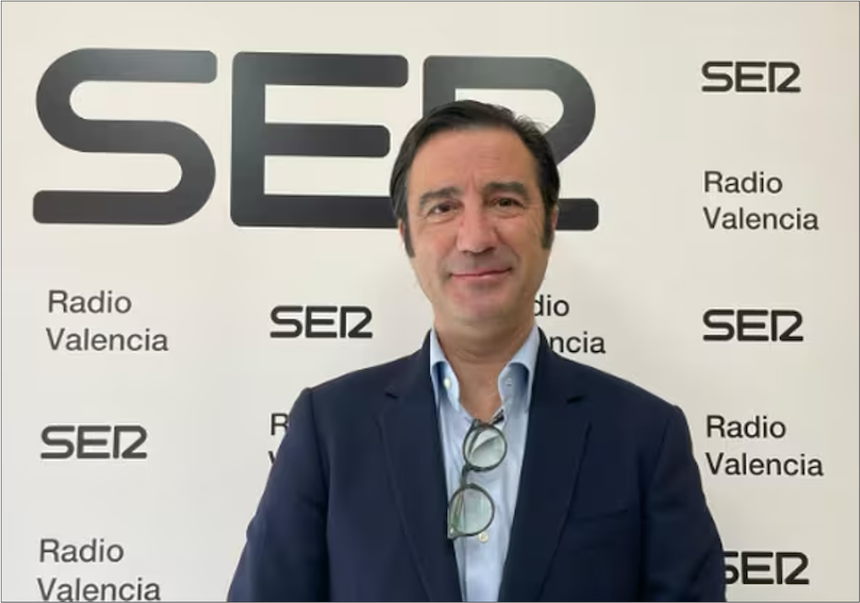 Dr. Francisco Alonso, Director of INTRAS, has been interviewed by Cadena Ser for their program La Ventana Comunidad Valenciana, on January 24, 2025.
Dr. Francisco Alonso, Director of INTRAS, has been interviewed by Cadena Ser for their program La Ventana Comunidad Valenciana, on January 24, 2025.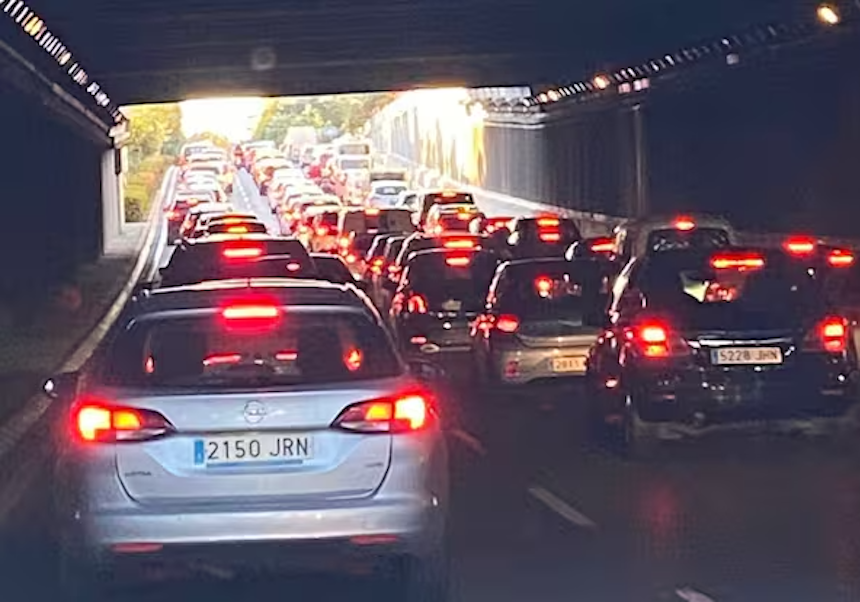 Dr. Francisco Alonso, Director of INTRAS, has been interviewed on November 14, 2024 by Cadena Ser in its program “Hoy por hoy Valencia”, to address how the DANA has affected mobility in the city of Valencia and metropolitan area.
Dr. Francisco Alonso, Director of INTRAS, has been interviewed on November 14, 2024 by Cadena Ser in its program “Hoy por hoy Valencia”, to address how the DANA has affected mobility in the city of Valencia and metropolitan area.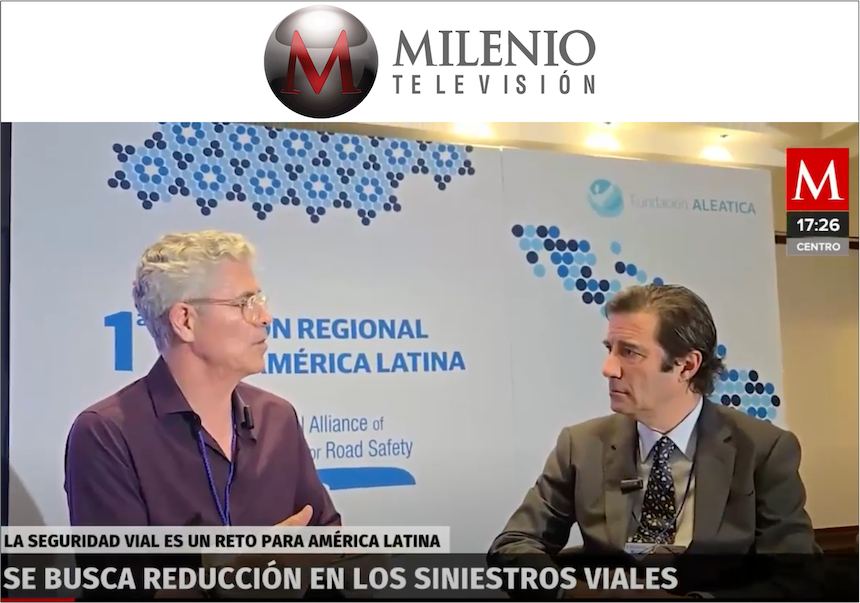 Dr. Francisco Alonso, Director of INTRAS, has been interviewed by Milenio TV (Mexico) for its news program “Movilidad” (Mobility), on November 7, 2024.
Dr. Francisco Alonso, Director of INTRAS, has been interviewed by Milenio TV (Mexico) for its news program “Movilidad” (Mobility), on November 7, 2024.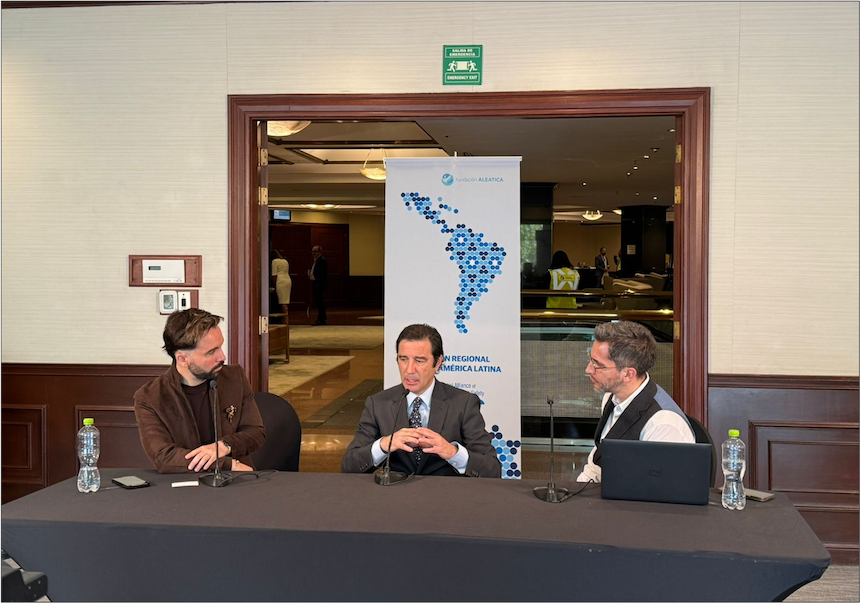 Dr. Francisco Alonso, Director of INTRAS, has been interviewed on November 5, 2024 by Reporte Indigo, information platform in Mexico.
Dr. Francisco Alonso, Director of INTRAS, has been interviewed on November 5, 2024 by Reporte Indigo, information platform in Mexico.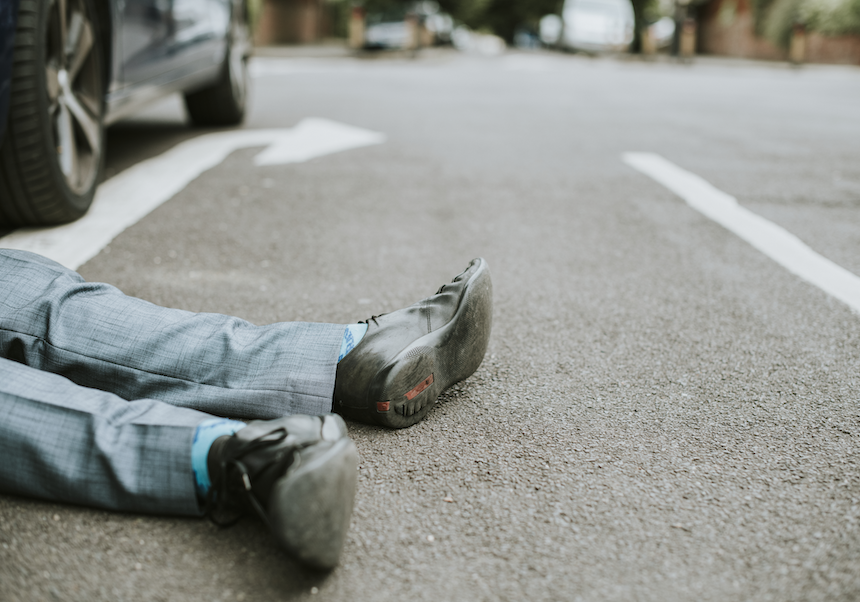 Dr. Francisco Alonso, Director of INTRAS, has been interviewed by the Radio “Cope Valencia" for his program “Luz de cruce”, directed by Vicente Herranz, in its broadcast of September 24, 2024.
Dr. Francisco Alonso, Director of INTRAS, has been interviewed by the Radio “Cope Valencia" for his program “Luz de cruce”, directed by Vicente Herranz, in its broadcast of September 24, 2024.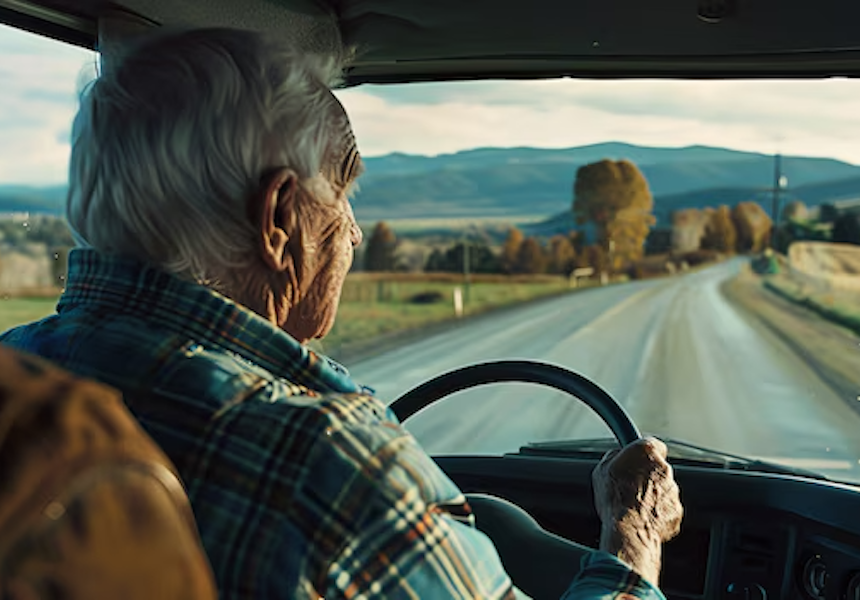 Dr. Francisco Alonso, Director of INTRAS, has been interviewed on September 12, 2024 by Cadena Ser on its program “Hoy por hoy”, to discuss how to manage the withdrawal of driving licenses for elderly people whose driving abilities have been impaired.
Dr. Francisco Alonso, Director of INTRAS, has been interviewed on September 12, 2024 by Cadena Ser on its program “Hoy por hoy”, to discuss how to manage the withdrawal of driving licenses for elderly people whose driving abilities have been impaired.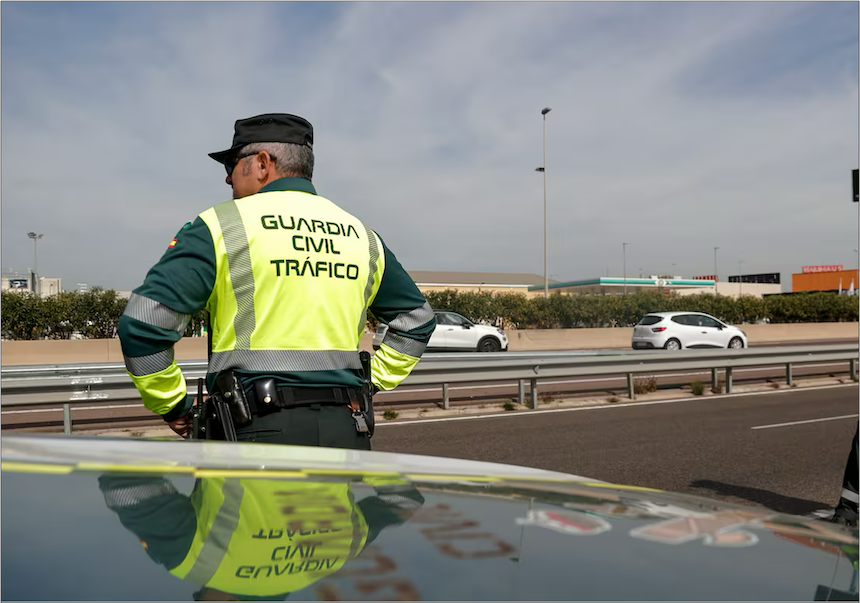 Dr. Francisco Alonso, Director of INTRAS, has been interviewed by Cadena SER on August 22, 2024 regarding drivers who drive without a license or having lost all their license points.
Dr. Francisco Alonso, Director of INTRAS, has been interviewed by Cadena SER on August 22, 2024 regarding drivers who drive without a license or having lost all their license points.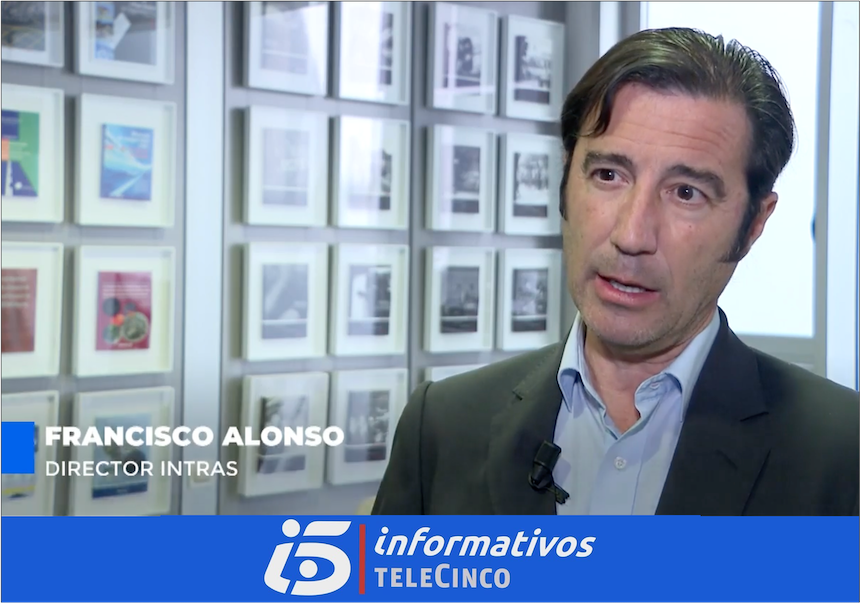 Dr. Francisco Alonso, Director of INTRAS, has been interviewed by TeleCinco News for its 3 pm and 9 pm editions of April 26, 2024.
Dr. Francisco Alonso, Director of INTRAS, has been interviewed by TeleCinco News for its 3 pm and 9 pm editions of April 26, 2024. Dr. Francisco Alonso, Director of INTRAS, has been interviewed by Radio Valencia, Cadena SER, on January 21, 2024, on the occasion of the entry into force of the change in the regulations by which only certified personal mobility vehicles will be marketed.
Dr. Francisco Alonso, Director of INTRAS, has been interviewed by Radio Valencia, Cadena SER, on January 21, 2024, on the occasion of the entry into force of the change in the regulations by which only certified personal mobility vehicles will be marketed.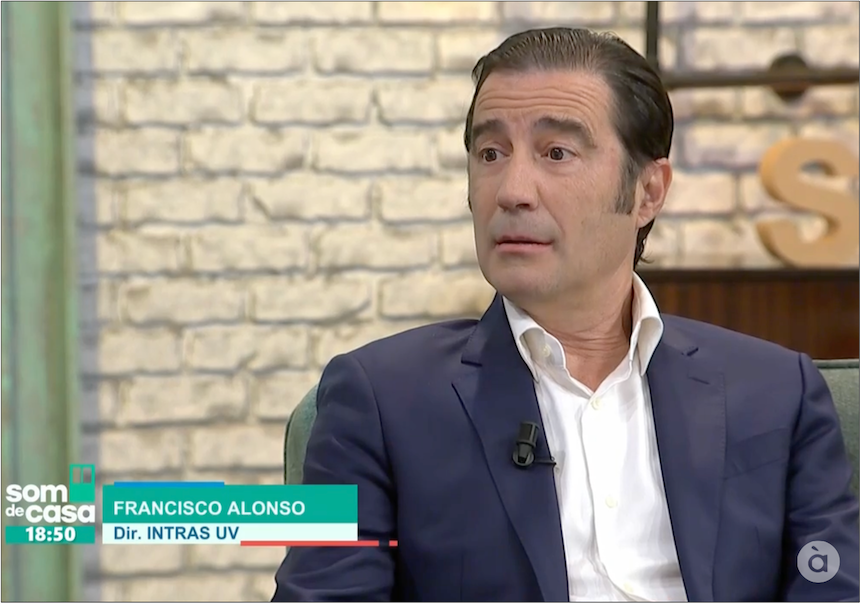 Dr. Francisco Alonso, Director of INTRAS, has been interviewed by the television channel Á punt, for its program "Som de Casa", presented by Ximo Rovira and Gema Payá, and broadcasted on January 17, 2024.
Dr. Francisco Alonso, Director of INTRAS, has been interviewed by the television channel Á punt, for its program "Som de Casa", presented by Ximo Rovira and Gema Payá, and broadcasted on January 17, 2024.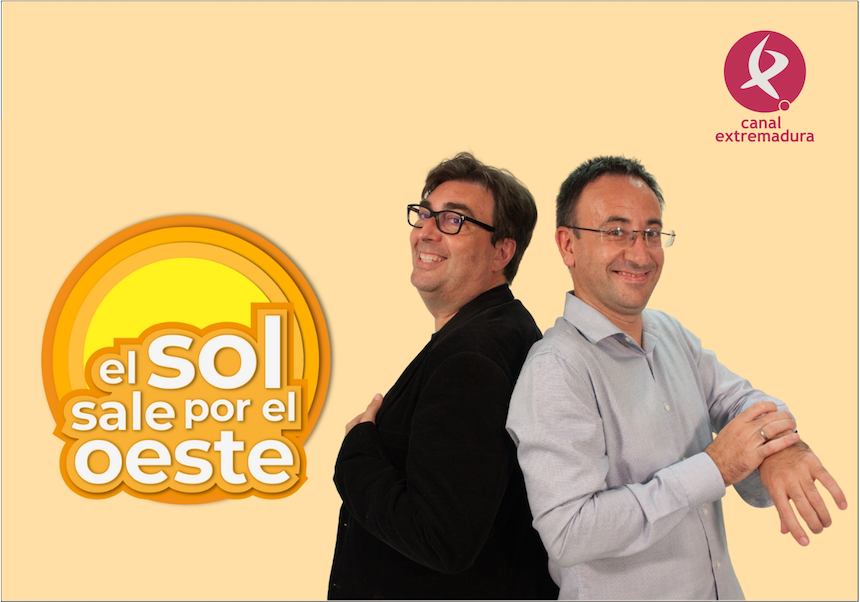 Dr. Francisco Alonso, Director of INTRAS, has been interviewed by Canal Extremadura Radio in its program "El sol sale por el oeste", broadcasted on January 8, 2024.
Dr. Francisco Alonso, Director of INTRAS, has been interviewed by Canal Extremadura Radio in its program "El sol sale por el oeste", broadcasted on January 8, 2024.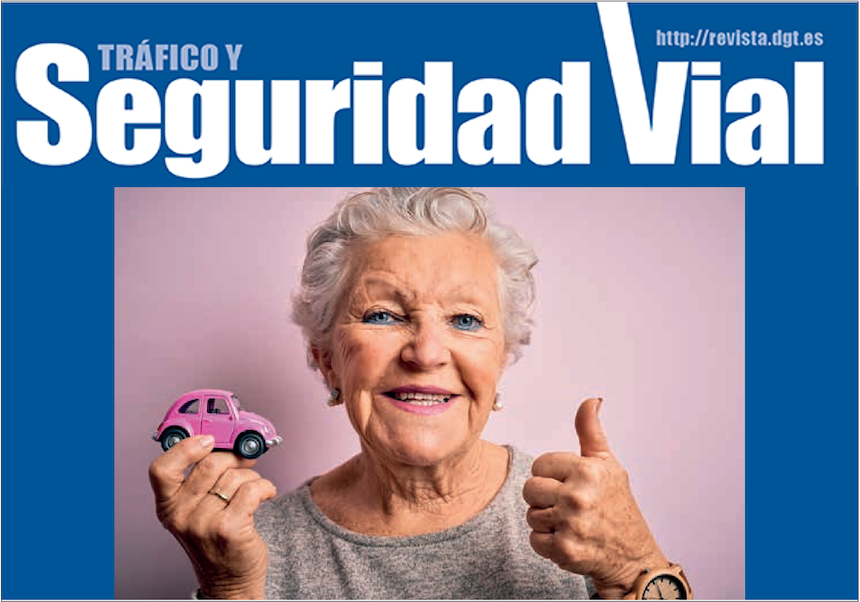 Dr. Francisco Alonso, Director of INTRAS, has been interviewed by the journal "Revista Tráfico” of the DGT (Directorate General of Traffic), for its article "Veterans behind the wheel: The challenge of driving safely at 70, 80, 90...", published in its number 268 of December 2023.
Dr. Francisco Alonso, Director of INTRAS, has been interviewed by the journal "Revista Tráfico” of the DGT (Directorate General of Traffic), for its article "Veterans behind the wheel: The challenge of driving safely at 70, 80, 90...", published in its number 268 of December 2023.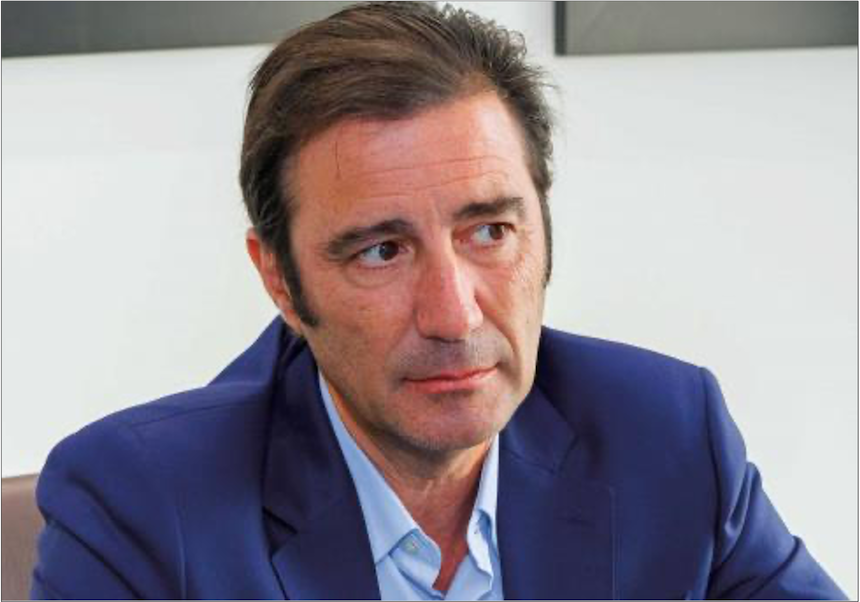 Dr. Francisco Alonso, Director of INTRAS, has been interviewed by Diario Libre, Dominican Republic, for its article published on November 6, 2023.
Dr. Francisco Alonso, Director of INTRAS, has been interviewed by Diario Libre, Dominican Republic, for its article published on November 6, 2023. Dr. Francisco Alonso, Director of INTRAS, has been interviewed by the newspaper Levante-EMV for his article "El Gobierno advierte a València de que tendrá que devolver las ayudas si no pone la Zona de Bajas Emisiones", published on September 23rd, 2023.
Dr. Francisco Alonso, Director of INTRAS, has been interviewed by the newspaper Levante-EMV for his article "El Gobierno advierte a València de que tendrá que devolver las ayudas si no pone la Zona de Bajas Emisiones", published on September 23rd, 2023.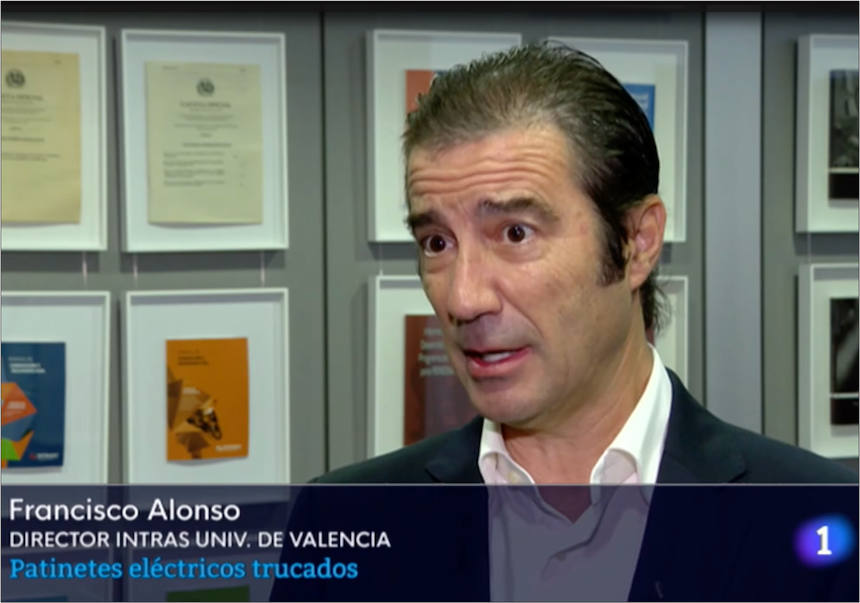 Dr. Francisco Alonso, Director of INTRAS, has been interviewed on September 19, 2023 by Spanish Radio Television (RTVE) for its news program of the Valencian Community, regarding the modifications that some users make to their electric scooters.
Dr. Francisco Alonso, Director of INTRAS, has been interviewed on September 19, 2023 by Spanish Radio Television (RTVE) for its news program of the Valencian Community, regarding the modifications that some users make to their electric scooters.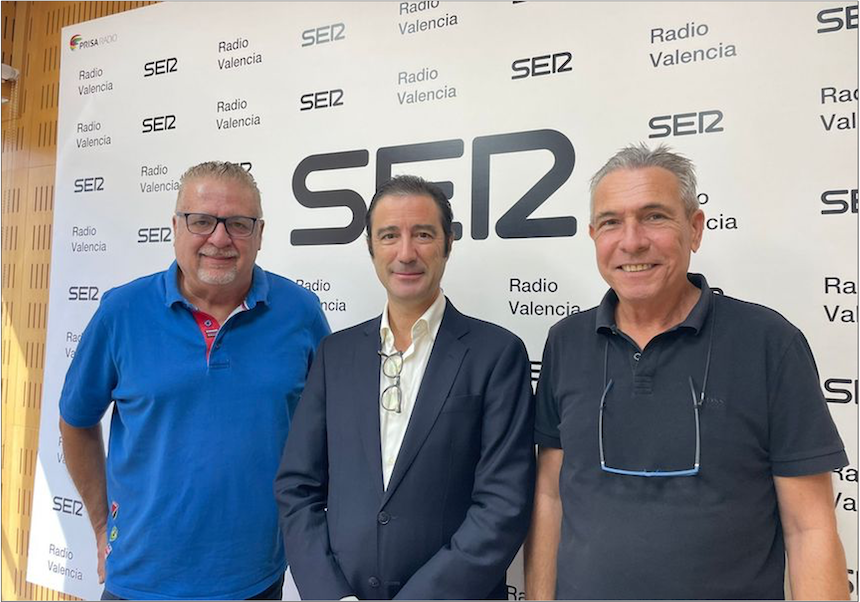 Dr. Francisco Alonso, Director of INTRAS, has been interviewed on September 18, 2023 by Cadena Ser in its program Hoy por hoy, to address the safety of Personal Mobility Vehicles and especially electric scooters.
Dr. Francisco Alonso, Director of INTRAS, has been interviewed on September 18, 2023 by Cadena Ser in its program Hoy por hoy, to address the safety of Personal Mobility Vehicles and especially electric scooters. Dr. Francisco Alonso, Director of INTRAS, has been interviewed by the newspaper Levante-EMV about the use of electric scooters on September 13, 2023.
Dr. Francisco Alonso, Director of INTRAS, has been interviewed by the newspaper Levante-EMV about the use of electric scooters on September 13, 2023.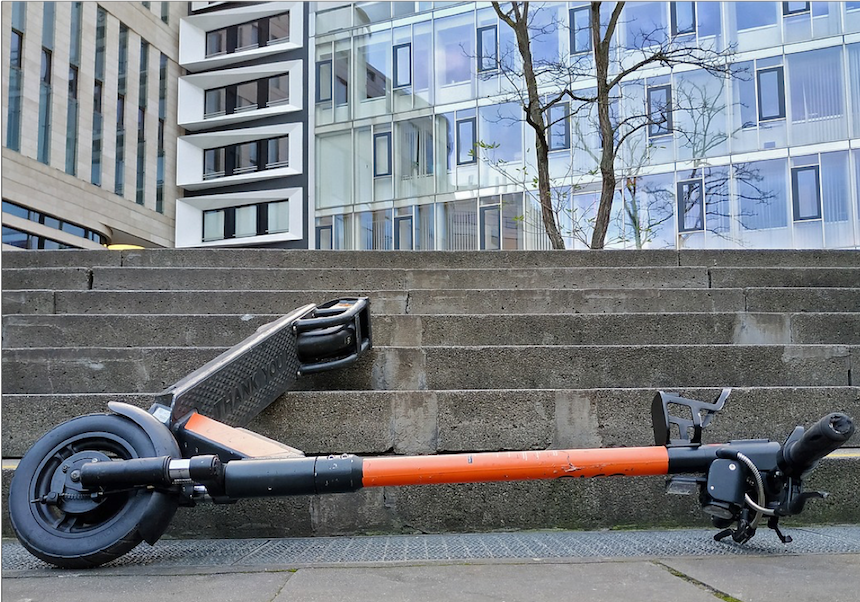 Dr. Francisco Alonso, Director of INTRAS, has been interviewed by Cadena COPE in its program La Tarde, August 21, 2023.
Dr. Francisco Alonso, Director of INTRAS, has been interviewed by Cadena COPE in its program La Tarde, August 21, 2023.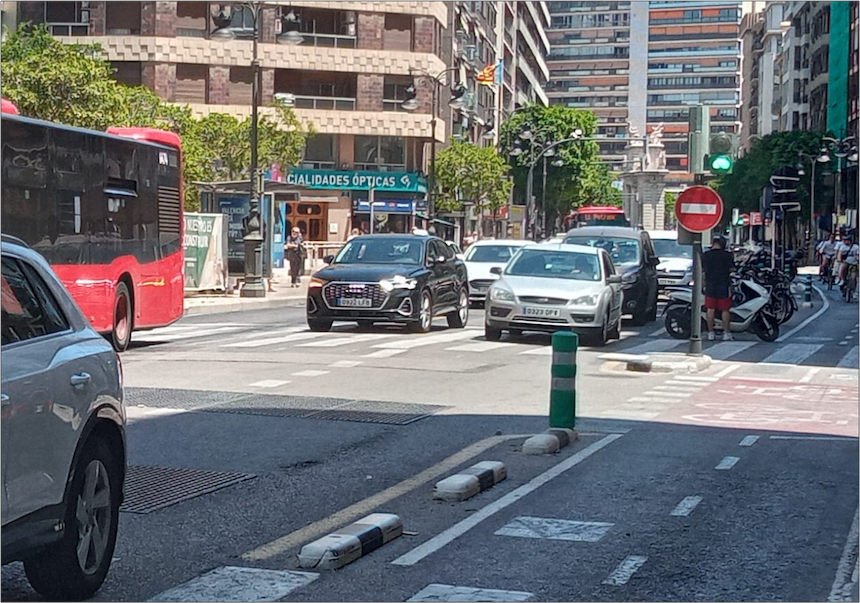 Dr. Francisco Alonso, Director of INTRAS, has been interviewed by the newspaper El País for his article "An unsolved traffic puzzle in the heart of Valencia's commercial center", published on July 13, 2023
Dr. Francisco Alonso, Director of INTRAS, has been interviewed by the newspaper El País for his article "An unsolved traffic puzzle in the heart of Valencia's commercial center", published on July 13, 2023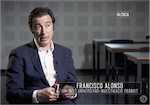 Dr. Francisco Alonso, Director of INTRAS, has been interviewed by the television channel À Punt, for its program Zoom and its research report "Road Safety", broadcasted on May 22nd, 2023.
Dr. Francisco Alonso, Director of INTRAS, has been interviewed by the television channel À Punt, for its program Zoom and its research report "Road Safety", broadcasted on May 22nd, 2023.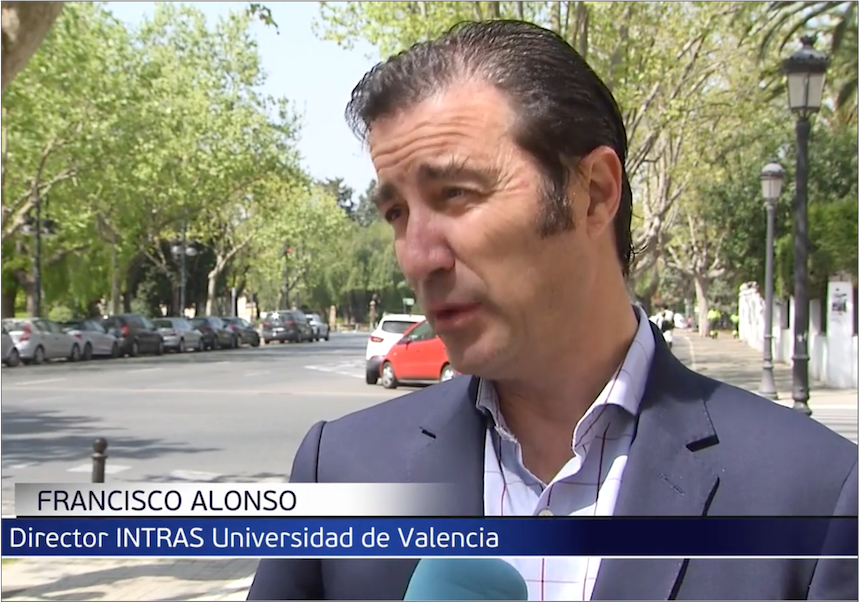 Dr. Francisco Alonso, Director of INTRAS, has been interviewed for Tele5 News in its evening edition of April 11, 2023.
Dr. Francisco Alonso, Director of INTRAS, has been interviewed for Tele5 News in its evening edition of April 11, 2023.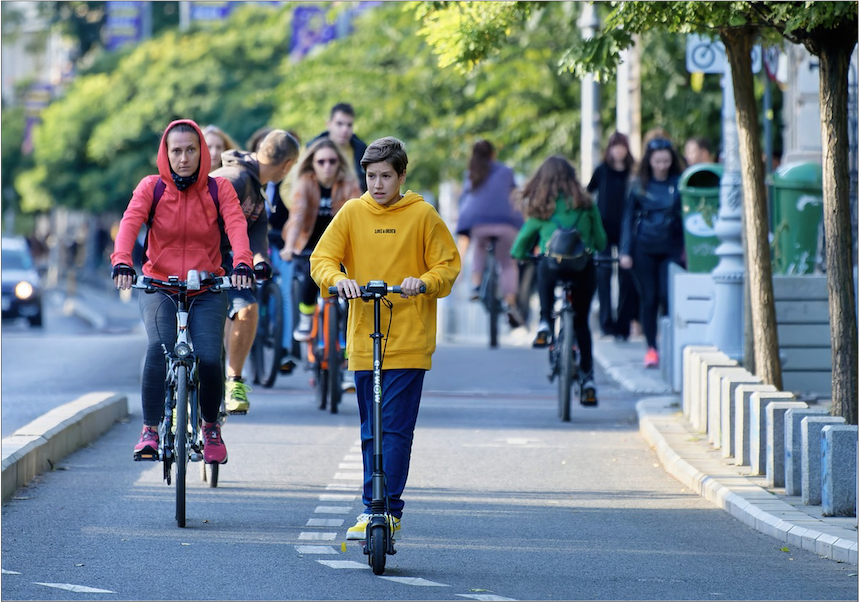 Dr. Francisco Alonso, Director of INTRAS, has been interviewed by the newspaper 20 minutos, for his article " Rejection to eliminate the amber traffic lights at the crossroads of avenues ", published on 20 February 2023.
Dr. Francisco Alonso, Director of INTRAS, has been interviewed by the newspaper 20 minutos, for his article " Rejection to eliminate the amber traffic lights at the crossroads of avenues ", published on 20 February 2023.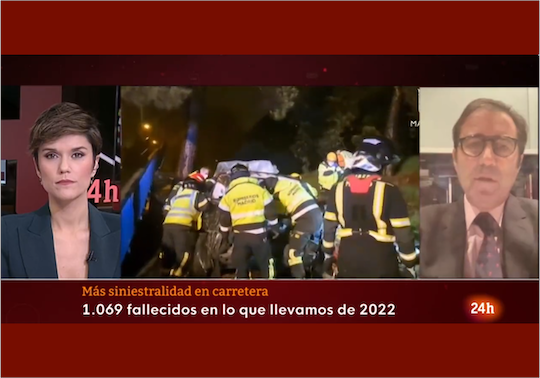 Dr. Francisco Alonso, Director of INTRAS, has been interviewed by RTVE Channel 24 hours, in its report "8 people have died during this macro-holiday on Spanish roads, 1069 so far this year", broadcasted on 12 December 2022.
Dr. Francisco Alonso, Director of INTRAS, has been interviewed by RTVE Channel 24 hours, in its report "8 people have died during this macro-holiday on Spanish roads, 1069 so far this year", broadcasted on 12 December 2022.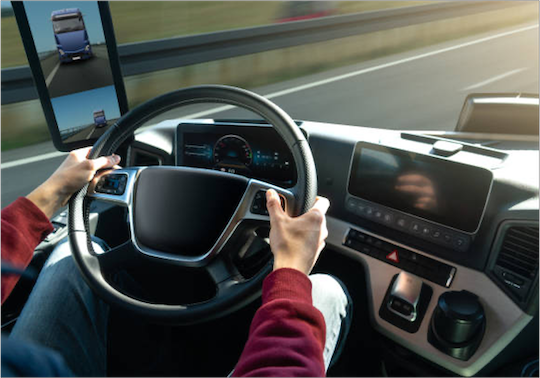 Dr. Francisco Alonso, Director of INTRAS, has been interviewed by Mara Torres for the podcast El Faro, of Cadena Ser, broadcasted on 4 November 2022 with the title "Retro".
Dr. Francisco Alonso, Director of INTRAS, has been interviewed by Mara Torres for the podcast El Faro, of Cadena Ser, broadcasted on 4 November 2022 with the title "Retro".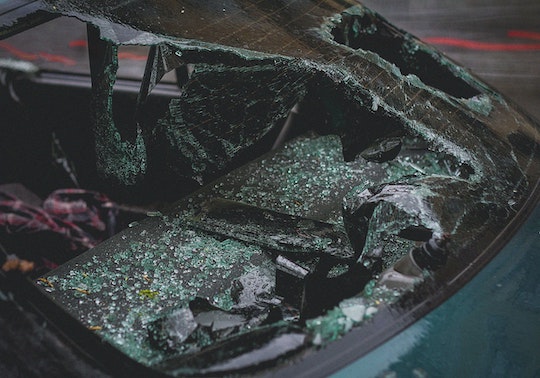 Dr. Francisco Alonso, Director of INTRAS, has been interviewed by the digital newspaper NIUS for his article "Deaths on Spanish roads already exceed pre-pandemic victims", published on 2 November 2022.
Dr. Francisco Alonso, Director of INTRAS, has been interviewed by the digital newspaper NIUS for his article "Deaths on Spanish roads already exceed pre-pandemic victims", published on 2 November 2022.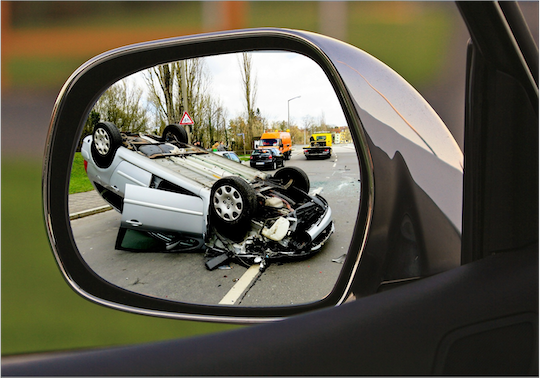 Dr. Francisco Alonso, Director of INTRAS, has been interviewed by Cadena Ser Comunidad Valenciana for his article "More fatal accidents, more consumption of drugs and drugs at the wheel: how the accident rate increases on the roads of the Comunitat Valenciana", published on 1 November 2022, also participating in the news H14.
Dr. Francisco Alonso, Director of INTRAS, has been interviewed by Cadena Ser Comunidad Valenciana for his article "More fatal accidents, more consumption of drugs and drugs at the wheel: how the accident rate increases on the roads of the Comunitat Valenciana", published on 1 November 2022, also participating in the news H14. Dr. Francisco Alonso, Director of INTRAS, has been interviewed by El País for his article " The heat and drugs, key factors in the increase of traffic accidents", published on 9 August 2022.
Dr. Francisco Alonso, Director of INTRAS, has been interviewed by El País for his article " The heat and drugs, key factors in the increase of traffic accidents", published on 9 August 2022.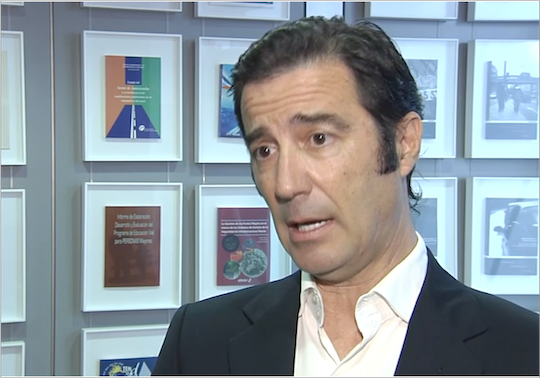 Dr. Francisco Alonso, Director of INTRAS, has been interviewed by the television channel Tele 5 for the reports broadcast on the 15:00 news programme, presented by Ala Lago, and the 21:00 news programme, presented by Isabel Jiménez, on 2 August 2022.
Dr. Francisco Alonso, Director of INTRAS, has been interviewed by the television channel Tele 5 for the reports broadcast on the 15:00 news programme, presented by Ala Lago, and the 21:00 news programme, presented by Isabel Jiménez, on 2 August 2022.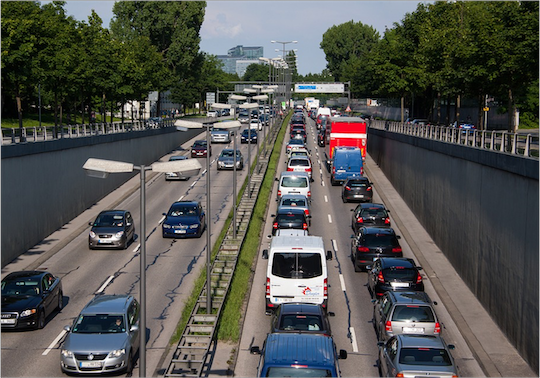 Dr. Francisco Alonso, Director of INTRAS and the Seofer Chair of Road Safety and Intelligent Mobility, has been interviewed by the newspaper Levante-EMV, for his article "Experts predict an increase in accidents in the second summer exit operation", published on 29 July 2022.
Dr. Francisco Alonso, Director of INTRAS and the Seofer Chair of Road Safety and Intelligent Mobility, has been interviewed by the newspaper Levante-EMV, for his article "Experts predict an increase in accidents in the second summer exit operation", published on 29 July 2022.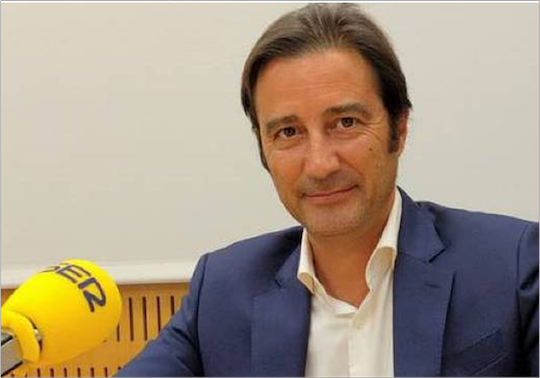 Dr. Francisco Alonso, Director of INTRAS, has been interviewed by the Radio Station "Ser" for his program "Hoy por hoy" in its broadcast on March 24, 2022, with respect to the new Traffic and Road Safety Law.
Dr. Francisco Alonso, Director of INTRAS, has been interviewed by the Radio Station "Ser" for his program "Hoy por hoy" in its broadcast on March 24, 2022, with respect to the new Traffic and Road Safety Law.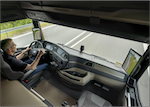 Dr. Francisco Alonso, Director of INTRAS, has been interviewed by the economic newspaper Cinco Días, for its article "Goodbye rear-view mirrors, hello cameras! Trucks improve their view to be safer", published on December 14, 2021.
Dr. Francisco Alonso, Director of INTRAS, has been interviewed by the economic newspaper Cinco Días, for its article "Goodbye rear-view mirrors, hello cameras! Trucks improve their view to be safer", published on December 14, 2021.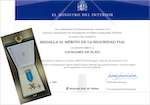 Dr. Francisco Alonso, Director of INTRAS, has been interviewed by the Radio “Cope Valencia" for his program “Luz de cruce”, directed by Vicente Herranz, in its broadcast of December 9, 2021.
Dr. Francisco Alonso, Director of INTRAS, has been interviewed by the Radio “Cope Valencia" for his program “Luz de cruce”, directed by Vicente Herranz, in its broadcast of December 9, 2021.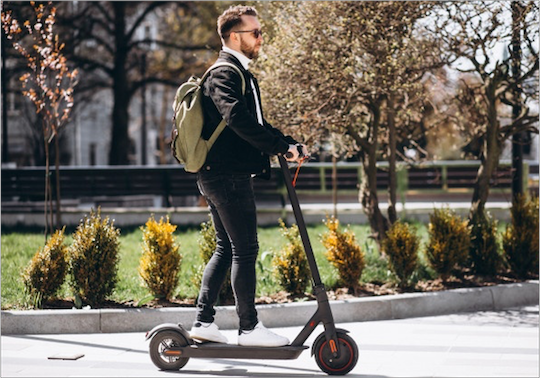 Dr. Francisco Alonso, Director of INTRAS, has been interviewed by Cadena Cope about road responsibility, accident rate and the use of personal mobility vehicles (PMV), for its program "La Tarde COPE" on November 5, 2021.
Dr. Francisco Alonso, Director of INTRAS, has been interviewed by Cadena Cope about road responsibility, accident rate and the use of personal mobility vehicles (PMV), for its program "La Tarde COPE" on November 5, 2021.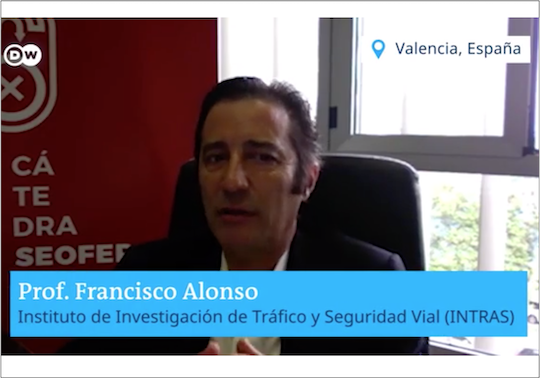 Dr. Francisco Alonso, Director of INTRAS, has been interviewed by Deutsche Welle, the German television channel for foreign countries, broadcasted on June 13, 2021.
Dr. Francisco Alonso, Director of INTRAS, has been interviewed by Deutsche Welle, the German television channel for foreign countries, broadcasted on June 13, 2021. The Magazine Tráfico y Seguridad Vial [Traffic and Road Safety], published by the Directorate General of Traffic, has published on February 8, 2021 an article on the study carried out by the DATS group of INTRAS related to eye movements and driving.
The Magazine Tráfico y Seguridad Vial [Traffic and Road Safety], published by the Directorate General of Traffic, has published on February 8, 2021 an article on the study carried out by the DATS group of INTRAS related to eye movements and driving.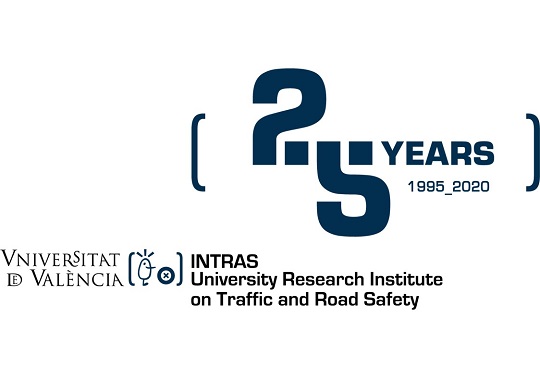 On the occasion of the 25th anniversary of INTRAS, its Director Dr. Francisco Alonso has been interviewed on July 20, 2020 for the program "Luz de Cruce", directed by Vicente Herranz.
On the occasion of the 25th anniversary of INTRAS, its Director Dr. Francisco Alonso has been interviewed on July 20, 2020 for the program "Luz de Cruce", directed by Vicente Herranz.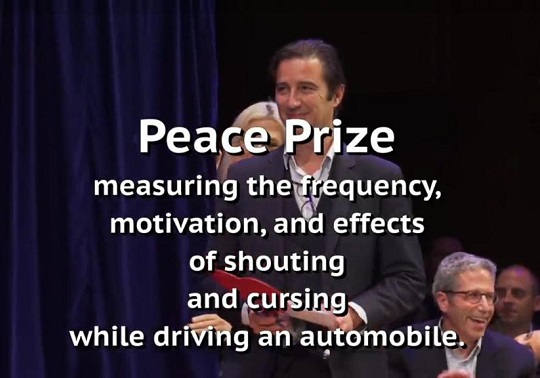 The Director of INTRAS, Dr. Francisco Alonso, has been interviewed by the Innovadores Magazine for his article "The most hooligan Nobel Prizes", published on March 22, 2020, where he talks about the Ig Nobel Prizes.
The Director of INTRAS, Dr. Francisco Alonso, has been interviewed by the Innovadores Magazine for his article "The most hooligan Nobel Prizes", published on March 22, 2020, where he talks about the Ig Nobel Prizes.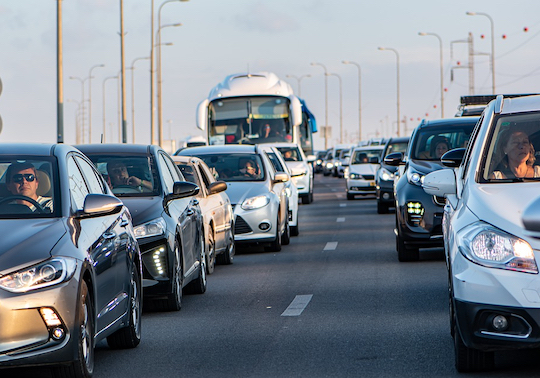 Dr Francisco Alonso has been interviewed by the newspaper Las Provincias because of his article “Atascados” (“Stuck in a traffic jam”), published on 10 November, 2019. where he talk about traffic jams in Valencia.
Dr Francisco Alonso has been interviewed by the newspaper Las Provincias because of his article “Atascados” (“Stuck in a traffic jam”), published on 10 November, 2019. where he talk about traffic jams in Valencia.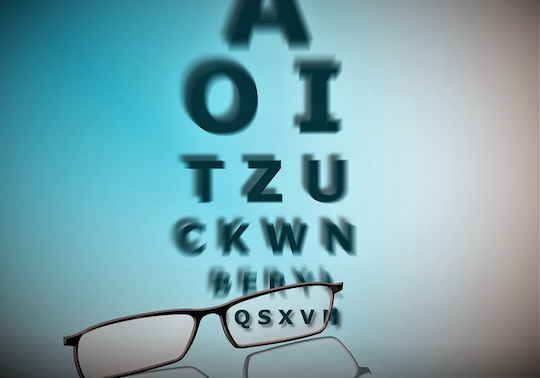 Dr. Francisco Alonso and Dr. Andrés Gené have been interviewed by the magazine "Consumer”, of Eroski, for his article "Can I have my driver's license withdrawn due to vision problems?", published on October 2, 2019
Dr. Francisco Alonso and Dr. Andrés Gené have been interviewed by the magazine "Consumer”, of Eroski, for his article "Can I have my driver's license withdrawn due to vision problems?", published on October 2, 2019 Dr. Francisco Alonso has been interviewed by the Val 202 Channel of the National Radio Slovenia for his program "Frekvenca X" (Frequency X), broadcast on September 19, 2019.
Dr. Francisco Alonso has been interviewed by the Val 202 Channel of the National Radio Slovenia for his program "Frekvenca X" (Frequency X), broadcast on September 19, 2019.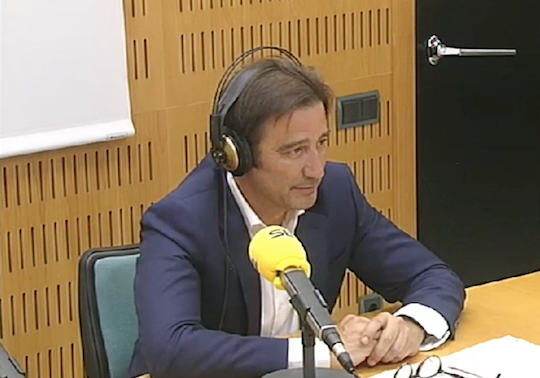 Dr. Francisco Alonso has been interviewed by the Radio Station "Ser" for his program "Hoy por hoy" in its broadcast on September 9, 2019, with respect to various issues related to traffic in Valencia.
Dr. Francisco Alonso has been interviewed by the Radio Station "Ser" for his program "Hoy por hoy" in its broadcast on September 9, 2019, with respect to various issues related to traffic in Valencia. Especially among the population most accustomed to checking their cell phones: young people.
Especially among the population most accustomed to checking their cell phones: young people.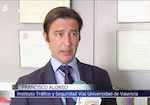 Dr. Francisco Alonso has been interviewed by Tele5 for its News in its broadcast of June 12, 2019, in relation to the serious accidents that have occurred in recent days due to excessive speed or the images on social networks of reckless driving, that reopens the debate about the factory limitation on maximum vehicle speed.
Dr. Francisco Alonso has been interviewed by Tele5 for its News in its broadcast of June 12, 2019, in relation to the serious accidents that have occurred in recent days due to excessive speed or the images on social networks of reckless driving, that reopens the debate about the factory limitation on maximum vehicle speed. Dr. Francisco Alonso has been interviewed for the article "Aging also impacts on traffic: are older drivers dangerous?", of the digital bulletin published every four months by the General Council of Colleges of Qualified Professionals, published on May 24, 2019.
Dr. Francisco Alonso has been interviewed for the article "Aging also impacts on traffic: are older drivers dangerous?", of the digital bulletin published every four months by the General Council of Colleges of Qualified Professionals, published on May 24, 2019. On the occasion of the approval by the Executive Power in the Dominican Republic of six regulations derived from Law 63-17 on Mobility, Land Transportation, Traffic and Road Safety, prepared under the advice of INTRAS, on January 31, 2019 it was carried out a meeting with the media where Dr. Francisco Alonso, Director of INTRAS and advisor of the National Institute of Traffic and Land Transportation (INTRANT) of the Dominican Republic, stated that this is intended to change the problem of road safety, through the implementation of new policies and regulations throughout the country.
On the occasion of the approval by the Executive Power in the Dominican Republic of six regulations derived from Law 63-17 on Mobility, Land Transportation, Traffic and Road Safety, prepared under the advice of INTRAS, on January 31, 2019 it was carried out a meeting with the media where Dr. Francisco Alonso, Director of INTRAS and advisor of the National Institute of Traffic and Land Transportation (INTRANT) of the Dominican Republic, stated that this is intended to change the problem of road safety, through the implementation of new policies and regulations throughout the country. Dr. Francisco Alonso has been interviewed by Tele5 for its News in its broadcast of October 30, 2018, regarding the use of the mobile phone in driving and camouflaged trucks with which the DGT is experiencing, from which the agents can see better to those who are using it, and that is a measure that has been working in England for years.
Dr. Francisco Alonso has been interviewed by Tele5 for its News in its broadcast of October 30, 2018, regarding the use of the mobile phone in driving and camouflaged trucks with which the DGT is experiencing, from which the agents can see better to those who are using it, and that is a measure that has been working in England for years. Dr. Francisco Alonso has been interviewed by the Radio “Apunt Radio" for his program “A ras”, directed by Jessica Crespo, in its broadcast of July 3, 2018.
Dr. Francisco Alonso has been interviewed by the Radio “Apunt Radio" for his program “A ras”, directed by Jessica Crespo, in its broadcast of July 3, 2018.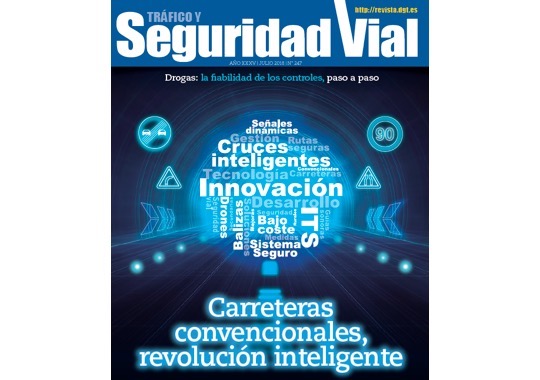 Dr. Francisco Alonso has been interviewed by the journal "Revista Tráfico” of the DGT, for its article "Objective: safe conventional roads", published in its number 247 of the month of July 2018.
Dr. Francisco Alonso has been interviewed by the journal "Revista Tráfico” of the DGT, for its article "Objective: safe conventional roads", published in its number 247 of the month of July 2018.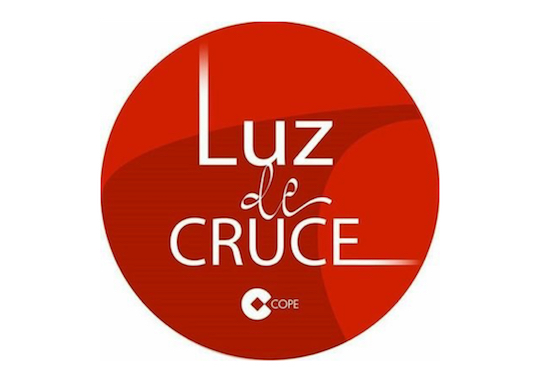 Dr. Francisco Alonso has been interviewed by the Radio “Cope Valencia" for his program “Luz de cruce”, directed by Vicente Herranz, in its broadcast of June 18, 2018.
Dr. Francisco Alonso has been interviewed by the Radio “Cope Valencia" for his program “Luz de cruce”, directed by Vicente Herranz, in its broadcast of June 18, 2018. Dr. Francisco Alonso has been interviewed by the newspaper El País, for his article "Do you pay more for a red car? Myths and truths about colors", published on May 13, 2018.
Dr. Francisco Alonso has been interviewed by the newspaper El País, for his article "Do you pay more for a red car? Myths and truths about colors", published on May 13, 2018. Dr. Francisco Alonso has been interviewed by the Radio Station "Ser" for his program "Hoy por hoy" in its broadcast on May 4, 2018, with respect to the changes that are taking place in the city of Valencia on mobility issues
Dr. Francisco Alonso has been interviewed by the Radio Station "Ser" for his program "Hoy por hoy" in its broadcast on May 4, 2018, with respect to the changes that are taking place in the city of Valencia on mobility issues Dr. Francisco Alonso has been interviewed by the journal Levante-EMV, for his article published on 31 July 2017 on the occasion of the wave of accidents that have happened in recent months and the launch of the ten safe routes for cyclists in the Region of Valencia.
Dr. Francisco Alonso has been interviewed by the journal Levante-EMV, for his article published on 31 July 2017 on the occasion of the wave of accidents that have happened in recent months and the launch of the ten safe routes for cyclists in the Region of Valencia. Dr. Francisco Alonso has been interviewed by the digital diary eldiario.es for his article “Bicycles on the road: more cyclists and more accidents but not more deceased", published on 12 June 2017, on the occasion of the accidents that occurred last weekend in which 5 cyclists have died on the Spanish roads and two have been seriously injured.
Dr. Francisco Alonso has been interviewed by the digital diary eldiario.es for his article “Bicycles on the road: more cyclists and more accidents but not more deceased", published on 12 June 2017, on the occasion of the accidents that occurred last weekend in which 5 cyclists have died on the Spanish roads and two have been seriously injured. Dr. Francisco Alonso has been interviewed by the television network Tele 5 for the reports issued in the news of 15:00 hours, presented by Isabel Jiménez, and the news of 21:00 hours, presented by Pedro Piqueras, on January 3, 2017.
Dr. Francisco Alonso has been interviewed by the television network Tele 5 for the reports issued in the news of 15:00 hours, presented by Isabel Jiménez, and the news of 21:00 hours, presented by Pedro Piqueras, on January 3, 2017. El País interviewed Dr. Francisco Alonso for the article published 7 August 2016, in its site ElMotor.com
El País interviewed Dr. Francisco Alonso for the article published 7 August 2016, in its site ElMotor.com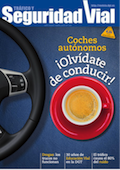 Dr. Francisco Alonso was interviewed by the Journal Tráfico, published by the Directorate-General of Traffic, in its number 235 of April 2016.
Dr. Francisco Alonso was interviewed by the Journal Tráfico, published by the Directorate-General of Traffic, in its number 235 of April 2016. The aggressiveness when we are at the wheel is something that is the order of the day. What is driving a car that makes violence appear even in the calmest people?
The aggressiveness when we are at the wheel is something that is the order of the day. What is driving a car that makes violence appear even in the calmest people? The issue 234 (February, 2016) of the Journal Tráfico, edited by the Directorate- General of Trafic, collects a study developed by the INTRAS for such entity and which is related to “Evaluation of the current state of road safety education", which places parents, mothers and police among the main road educators, according to the children.
The issue 234 (February, 2016) of the Journal Tráfico, edited by the Directorate- General of Trafic, collects a study developed by the INTRAS for such entity and which is related to “Evaluation of the current state of road safety education", which places parents, mothers and police among the main road educators, according to the children. Dr Fancisco Alonso has spoken to the news programme of Telecinco in relation to the accident rates of motorbikes in cities.
Dr Fancisco Alonso has spoken to the news programme of Telecinco in relation to the accident rates of motorbikes in cities. On the occasion of the recent presentation of the App Safe Route by Audi Attitudes, Dr Francisco Alonso has made a statement in the supplement “Familia" of ABC, for the article “How old must let go of the children alone to school?”
On the occasion of the recent presentation of the App Safe Route by Audi Attitudes, Dr Francisco Alonso has made a statement in the supplement “Familia" of ABC, for the article “How old must let go of the children alone to school?” The journal Tráfico, edited by the Directorate-General of Traffic, interviews Dr. Cristina Esteban, for its number 224 (February, 2014) with the question "Do emotions influence driving?"
The journal Tráfico, edited by the Directorate-General of Traffic, interviews Dr. Cristina Esteban, for its number 224 (February, 2014) with the question "Do emotions influence driving?"
 On 10 August 2013, Professor Alonso was interviewed for the National Newscast in La 1 of RTVE, at 15:00 and at 21:00.
On 10 August 2013, Professor Alonso was interviewed for the National Newscast in La 1 of RTVE, at 15:00 and at 21:00..jpg)
 "In 2012, one in three work-related accidents was due to traffic. Commuting and in-mission accidents represent 10% of workplace accidents for those on work leave".
"In 2012, one in three work-related accidents was due to traffic. Commuting and in-mission accidents represent 10% of workplace accidents for those on work leave"..jpg)

 This is the title of the article for which Francisco Alonso was interviews, and which is published in the 2nd issue of the journal Psychologies (March 2005).
This is the title of the article for which Francisco Alonso was interviews, and which is published in the 2nd issue of the journal Psychologies (March 2005).







